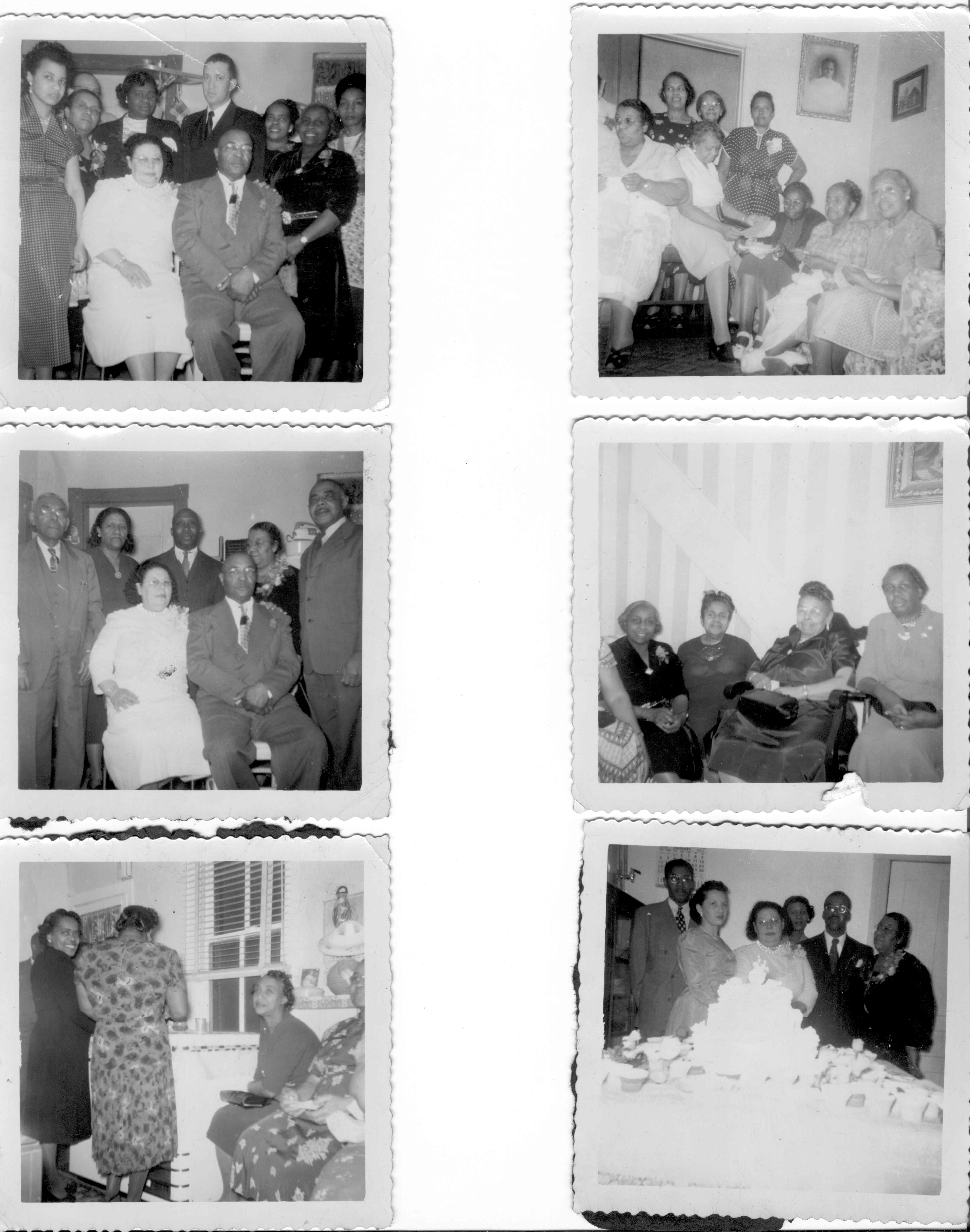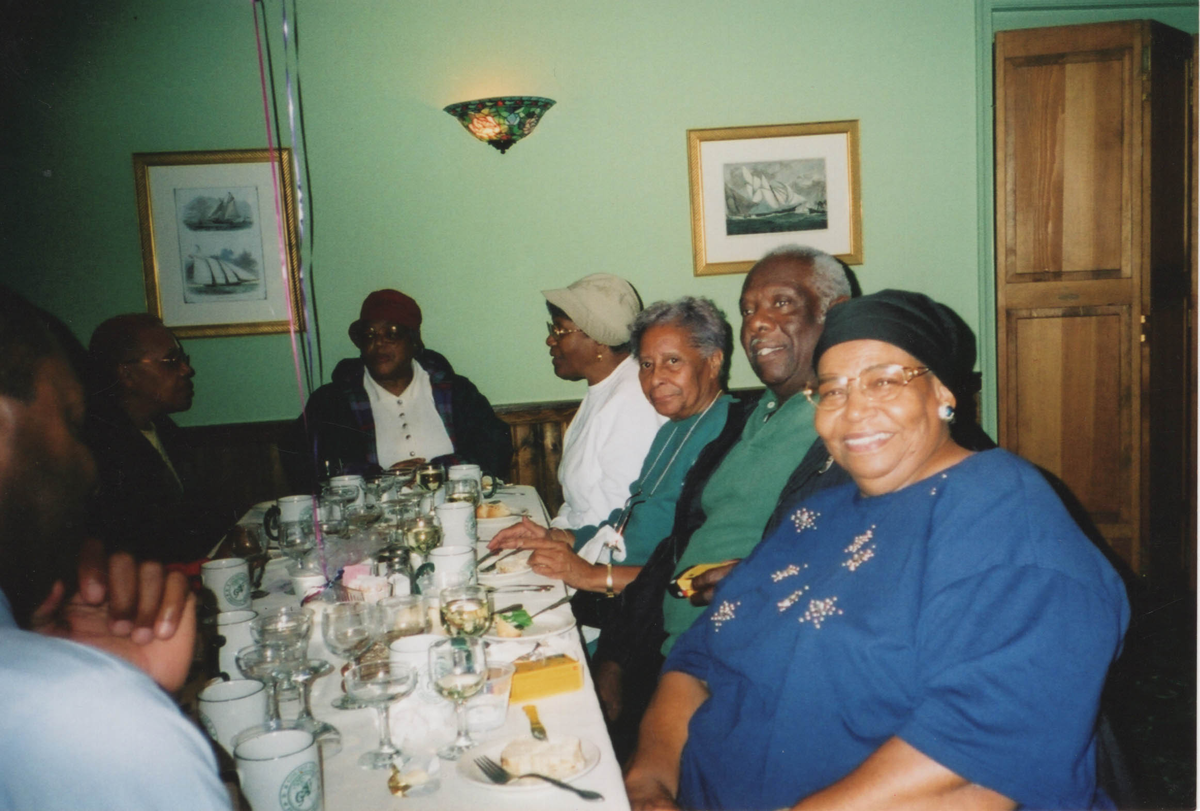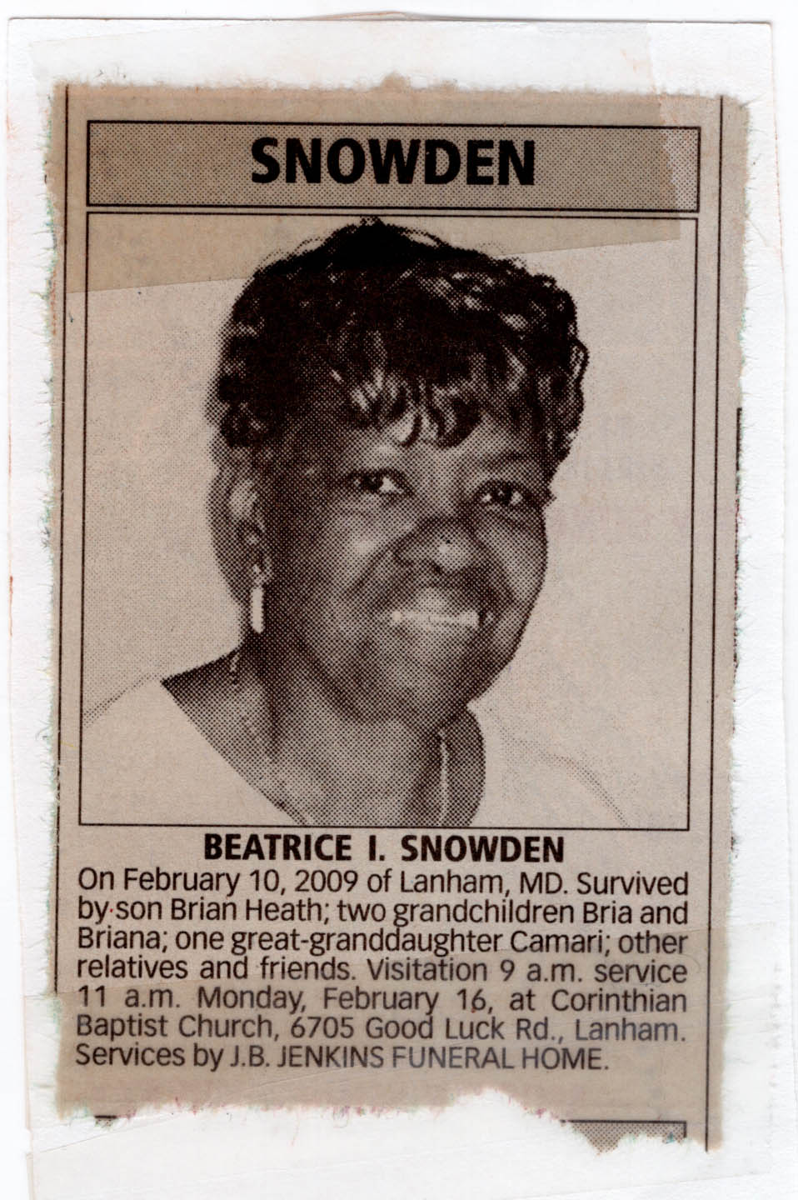
Newspaper Obituary for Beatrice Inez Snowden
Beatrice I. Snowden passed on February 10, 2009, in Lanhman, Maryland. In her passing, she left behind beloved family and friends. Details of her service are included in the clipping.

Beatrice I. Snowden passed on February 10, 2009, in Lanhman, Maryland. In her passing, she left behind beloved family and friends. Details of her service are included in the clipping.
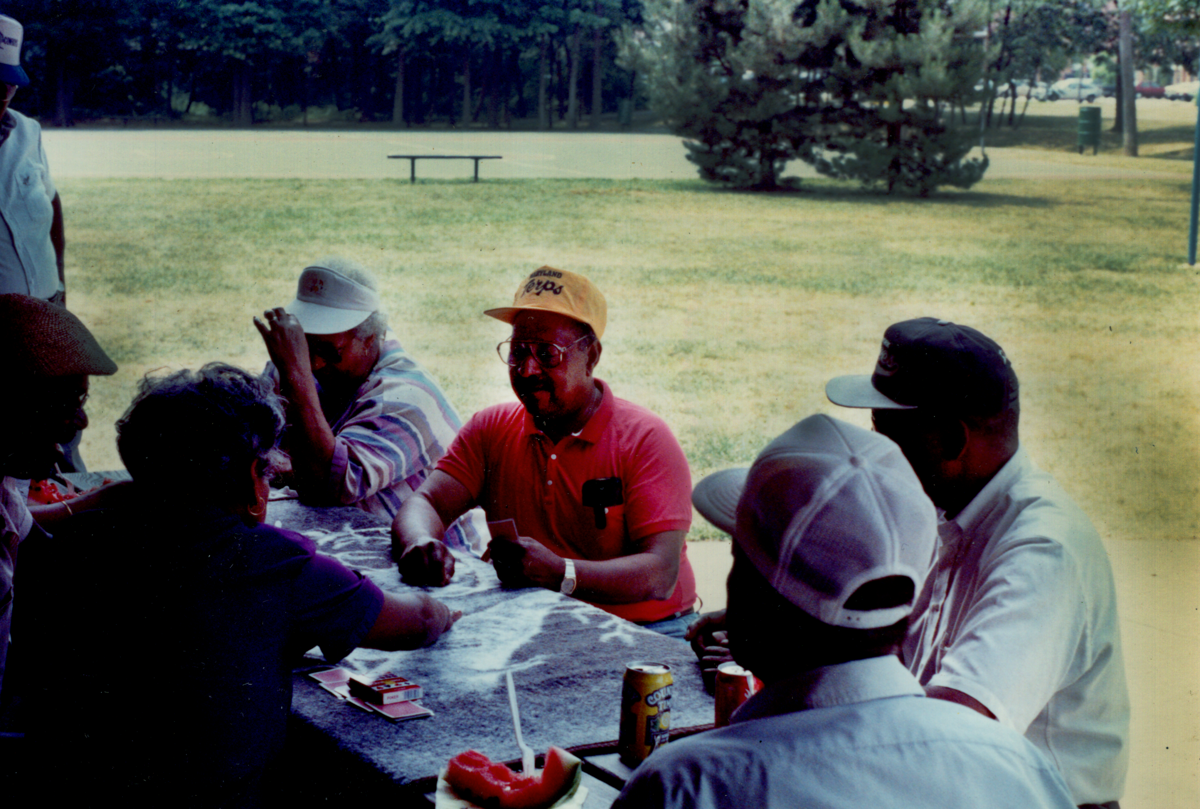
Photos from the Senior Citizen's picnic in July 1991.
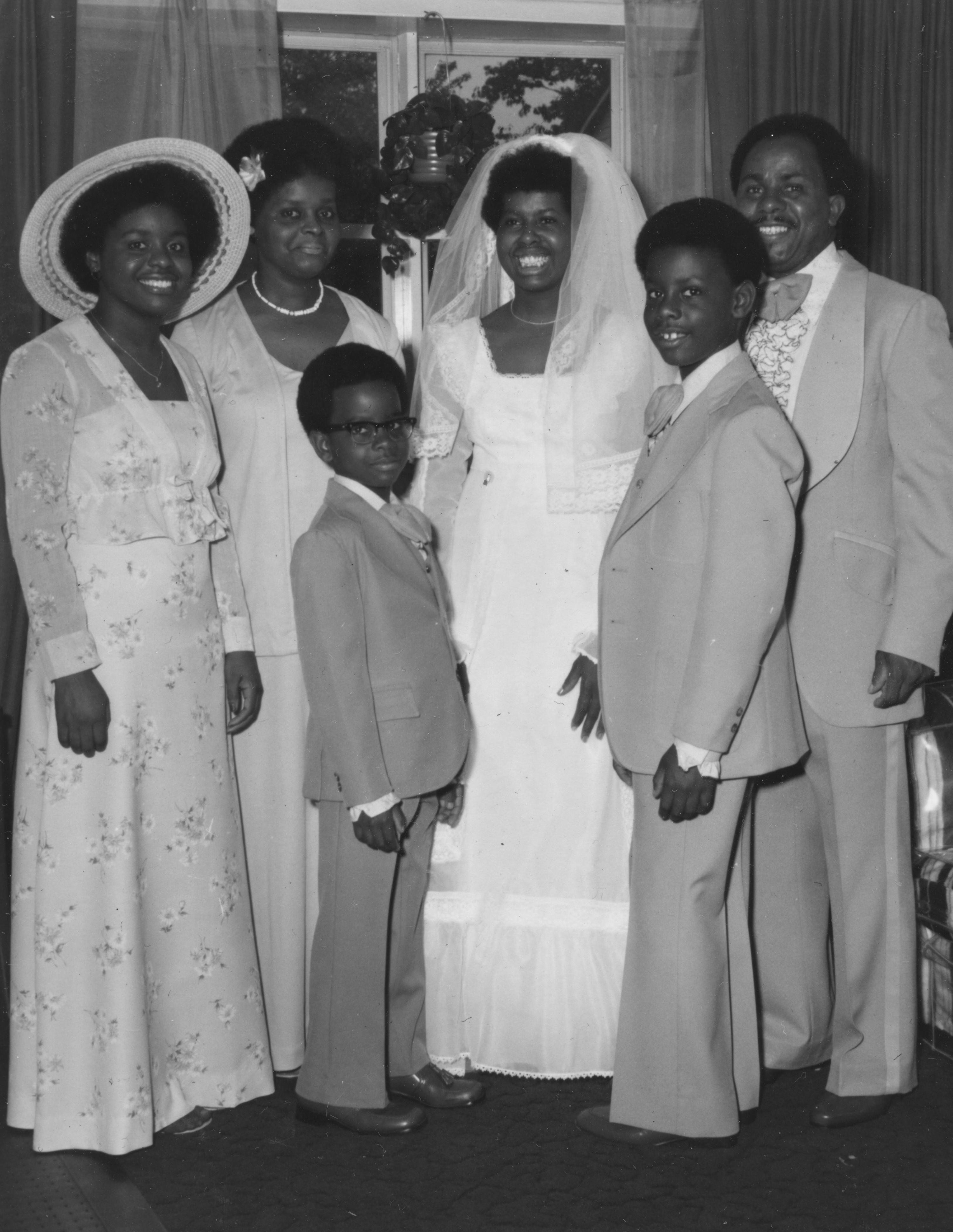
Members of the family of Carol Jean Matthews pictured on her wedding day.
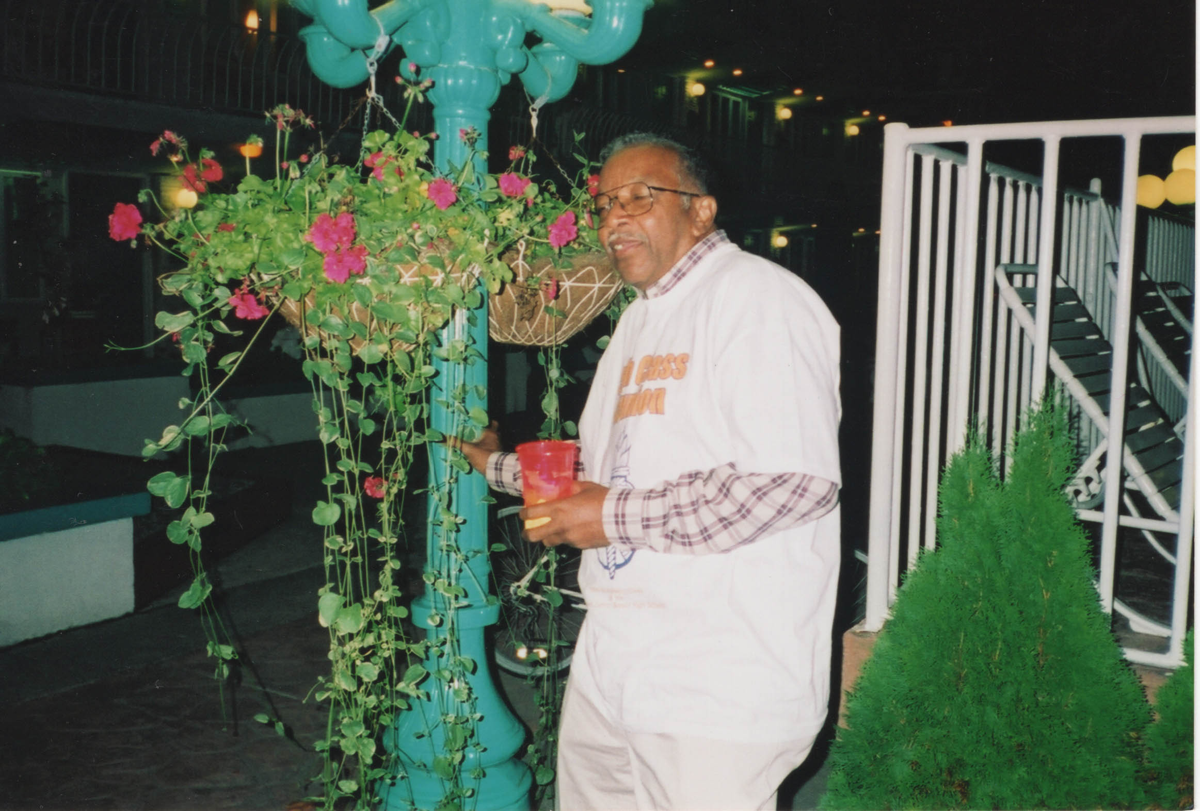
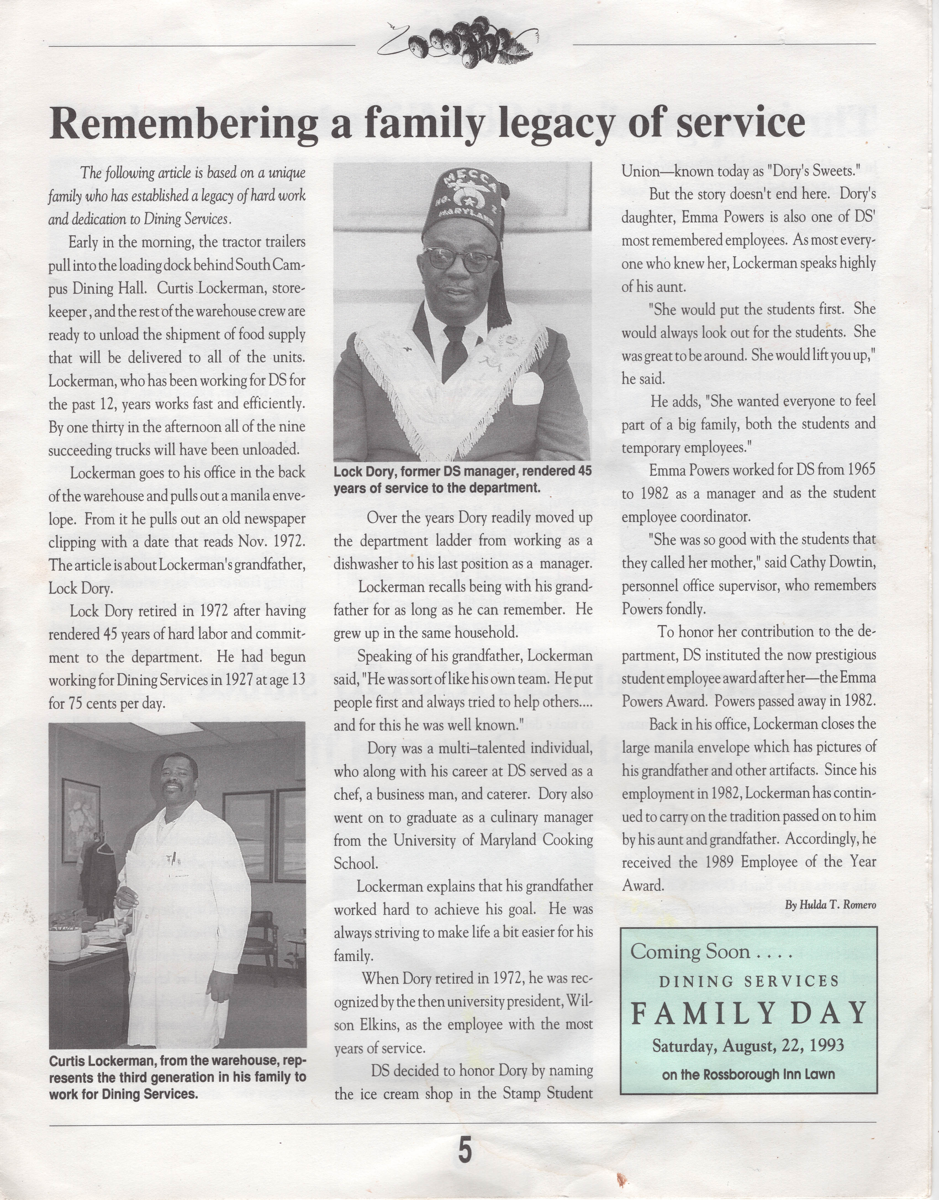
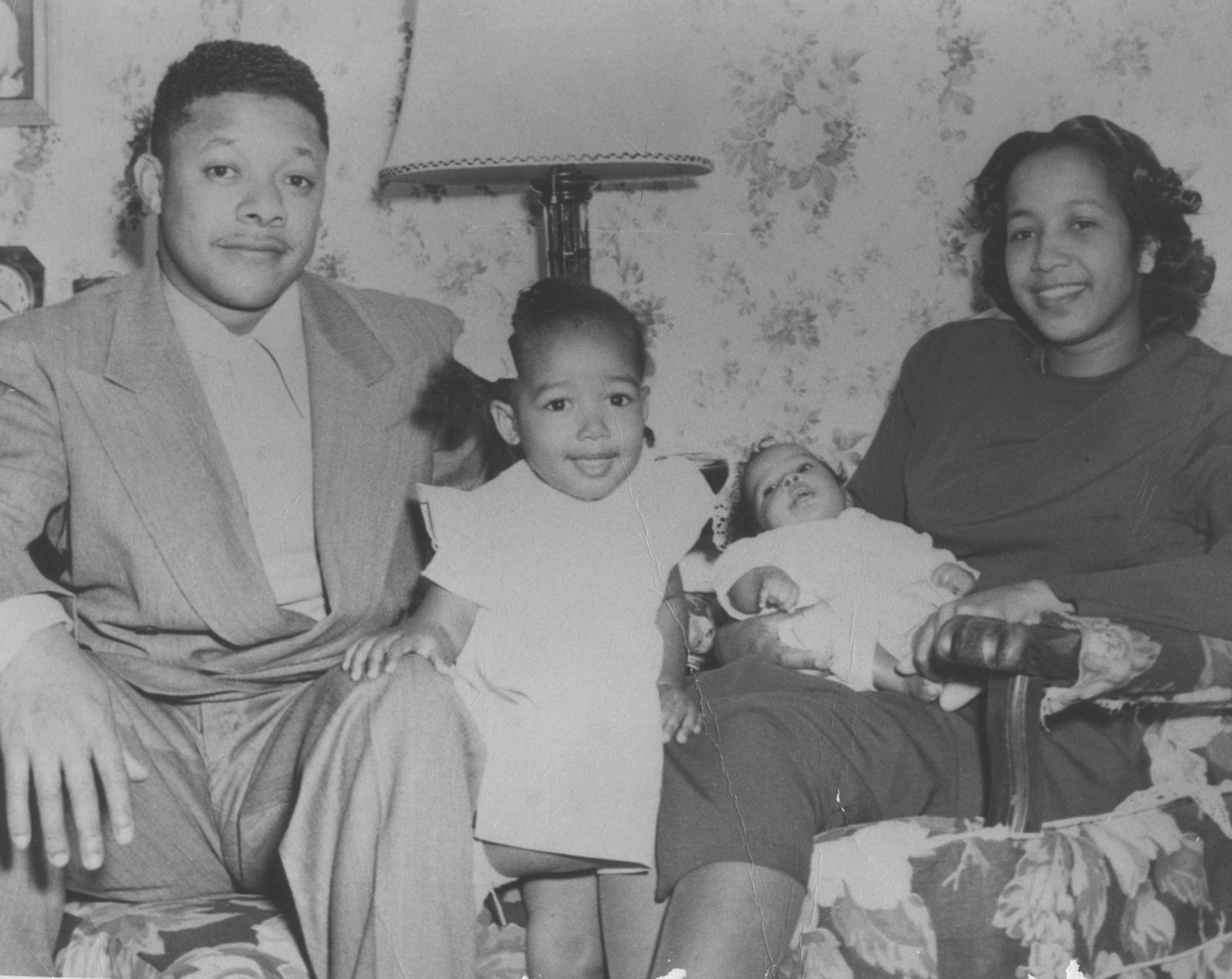
William and Lucille Sharps, at their home in Lakeland with Pamela, age two, welcomed baby daughter Violetta to the family in September 1948. Daughters Melonie and Joy joined the family in 1955 and 1959. Their home was the family residence for four generations until it was razed to make way for urban renewal. The family relocated to Lanham, Maryland, in February 1975.
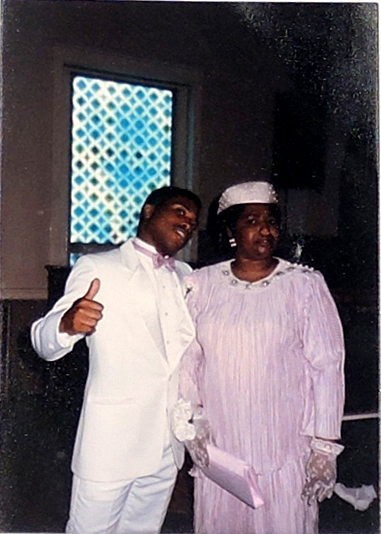
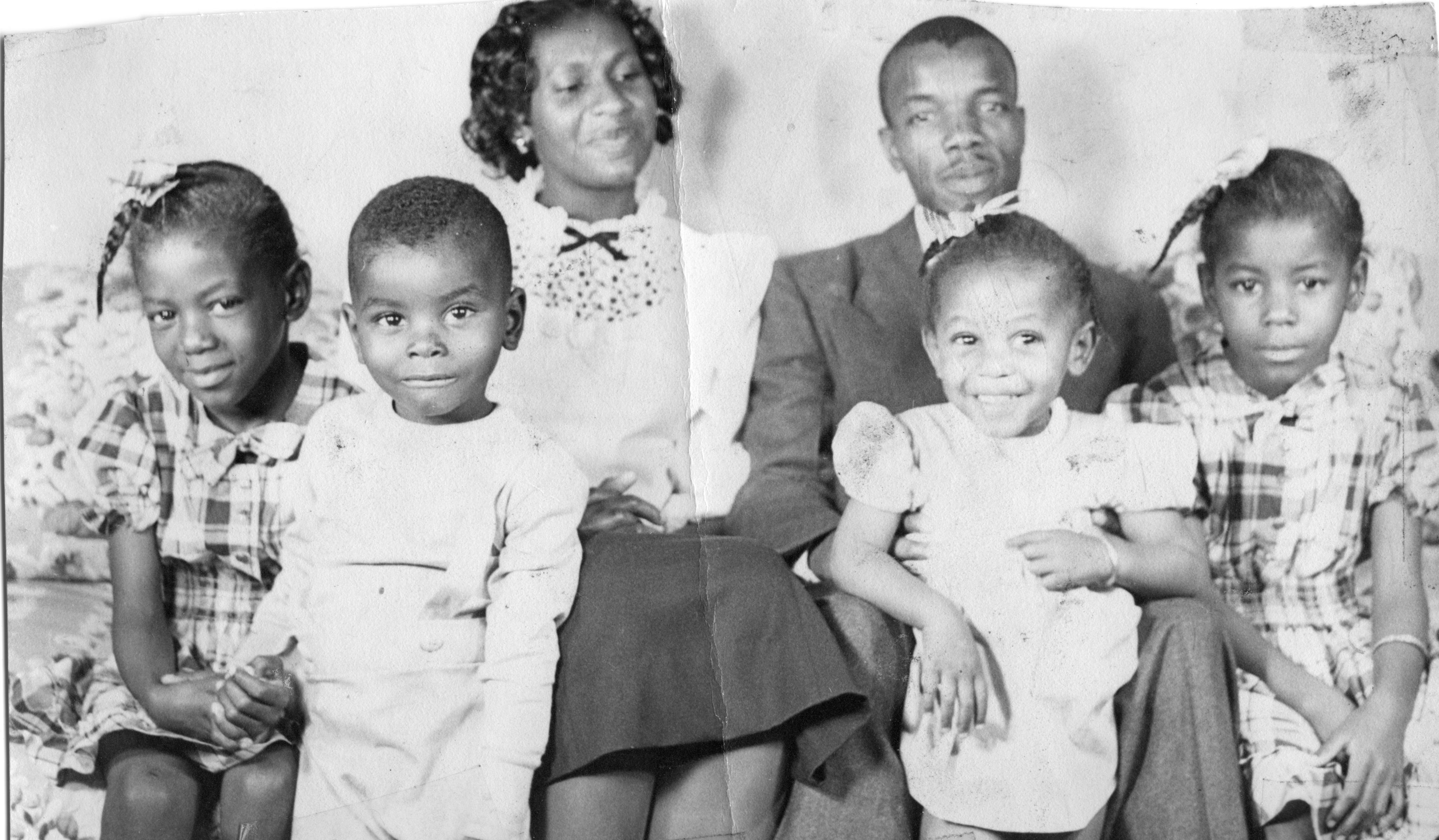
Thomas Albert Randall and Agnes Serena Ross both grew up in Lakeland and were married on December 24, 1941. They had four children at the time of this 1949 photo. They are twins Janet (far right) and Jacqueline (far left), Thomas, and Pamela. The youngest child, George, was born in 1953.
This interview was conducted with Dorothy Holman. It appears to have been done in two parts on the same day. The interview begins with Ms. Holman answering basic questions about her personal and family life. She was born on 12/24, in Lakeland, at home with the aid of a midwife. She was married twice and has one daughter. Ms. Holman describes some of the activities she has been involved with at her church and how the activities she participates in have changed as she has aged. YPD Clean Church Sunday School Missionary Work Cooking Ms. Holman talks about loss in her family and accomplishment of raising children. Children, grandchildren, and great-grandchildren. Ms. Holman elaborated on the role of religion in her and her family's lives. Everybody is human. Ms. Holman described the effects urban renewal has had on the Lakeland community. People leaving the neighborhood and not returning. Hasn't really harmed. Students moving in. Ms. Holman talks about living in her home. 70 years Left for two years during the War. Changes after World War II. Coming of the flooding. Current issues with students and parking. Meeting with Mayor and City Council. Ms. Holman then discussed her childhood memories. Snow days and ice skating on the lakes. Church activities including preaching, studying the Bible, and getting to know people. Everybody is human. Her family all lived nearby, including an aunt that helped take care of her and her siblings and her older cousins. Close community, neighbors would discipline you, no crime or fighting even in school. Family vacations to the beach near Annapolis. Ms. Holman describes gathering places for the community including the Beer Garden and Hall. Places are now torn down. Activities included dances and movies. Elks Club held dances. Ms. Holman describes her family life and the issues she and her family members are dealing with as they age. Her sister is in assisted living, because of Alzheimer's disease. Your mind leaves you. Mother raised her cousin and they remain close. Rely on young people and neighbors to drive her. At this point the interviewers attempt to wrap up the interview. Ms. Holman continues and shares more information about her family and aging. Parents passing. Father had brain cancer. Continues to talk about sister in assisted living. Lives with niece and nephew. Loneliness. No more Sunday dinners. The tape seems to shut off at this point and then to get turned back on in the middle of a conversation. In this part, Ms. Holman is discussing her house. Her father was able to buy the house for $2,000 by working at the University by waiting on tables. A white man named Mr. Watkins built the house. You get the land, I'll build you a house. Lived there approximately 70 years.
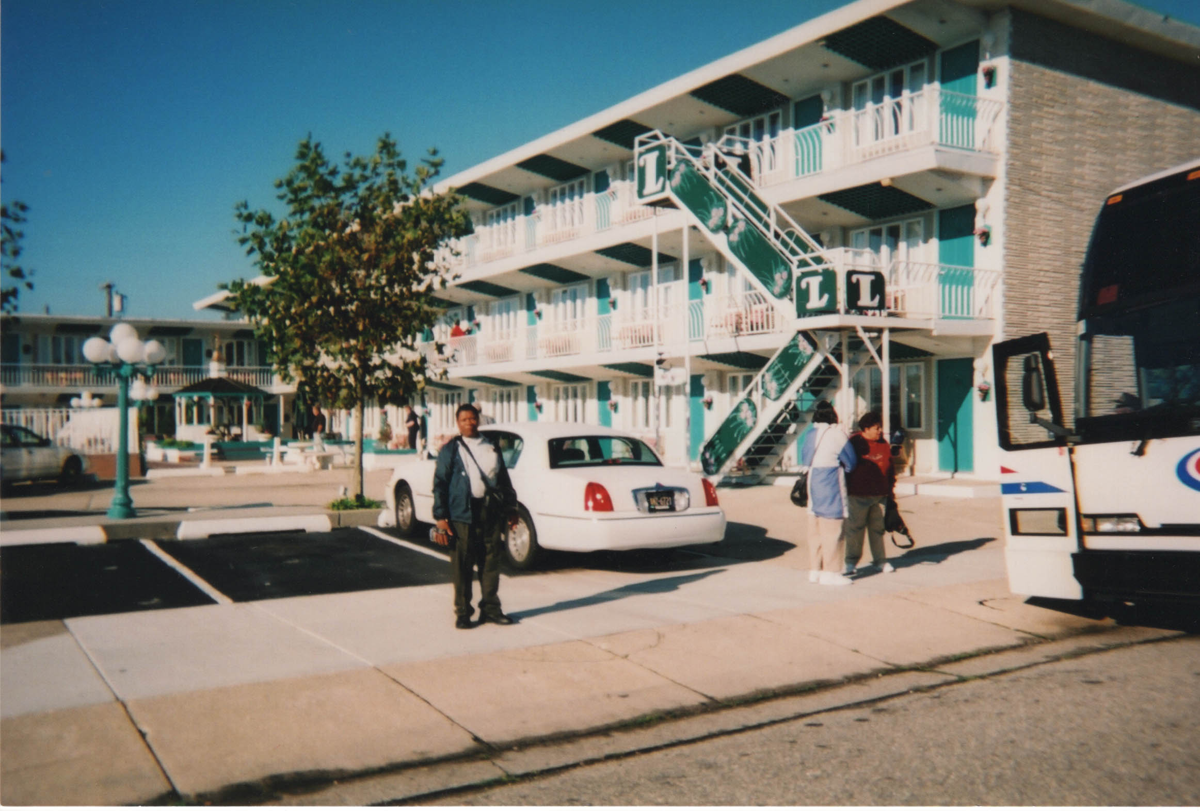
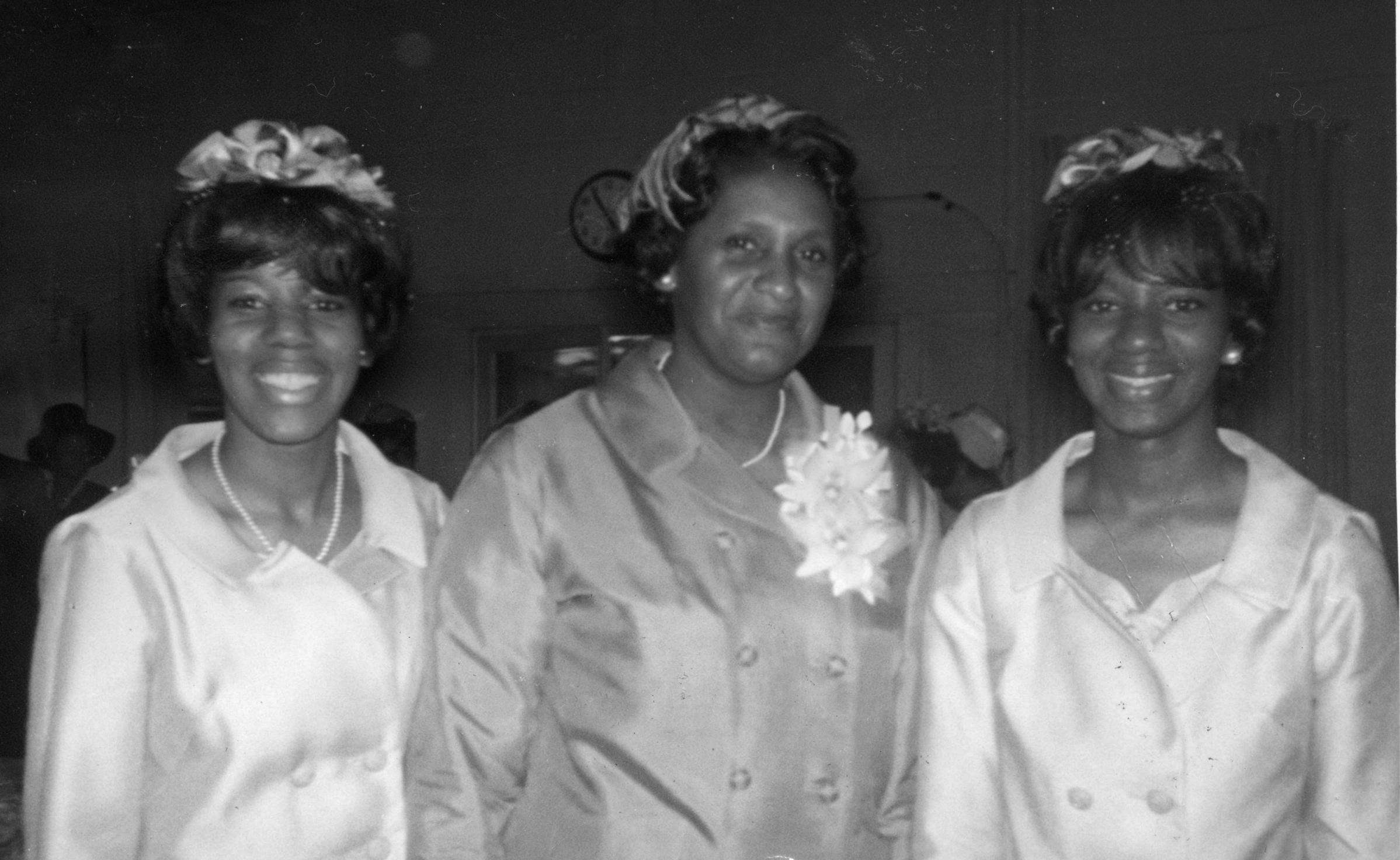
Jacqueline, Janet and Agnes Randall at wedding
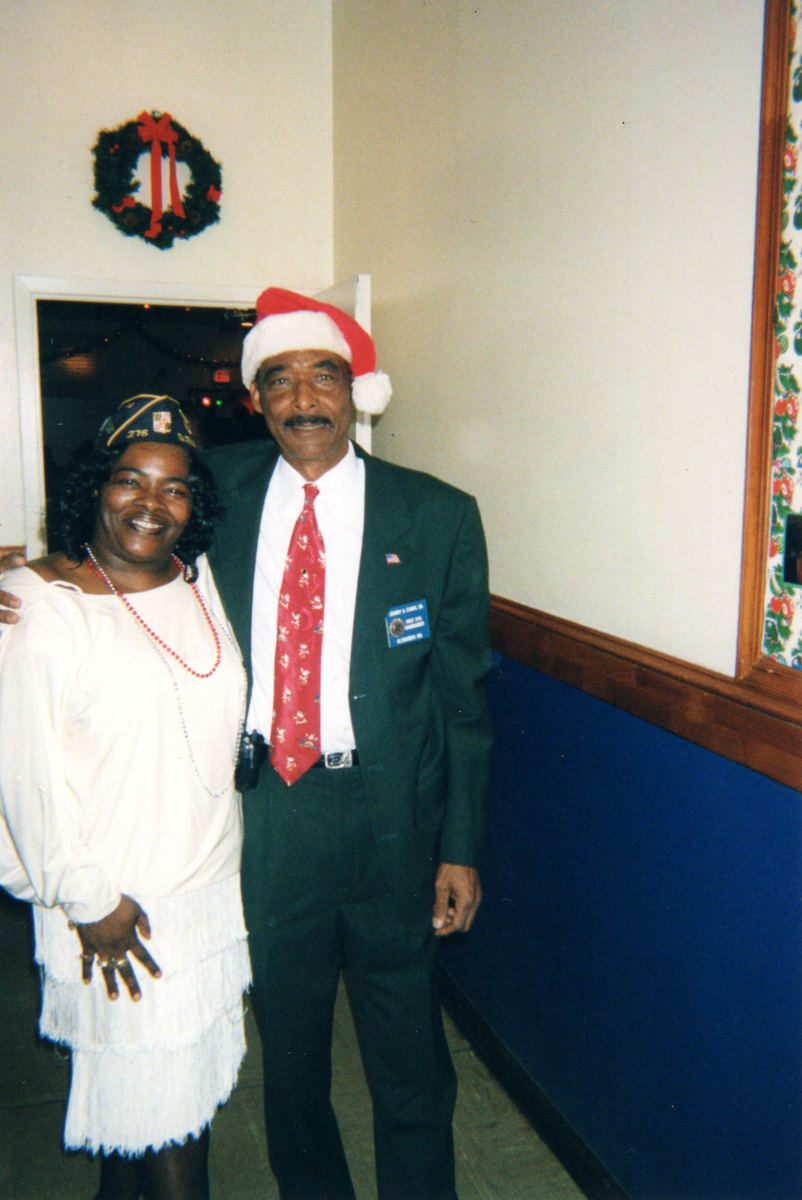
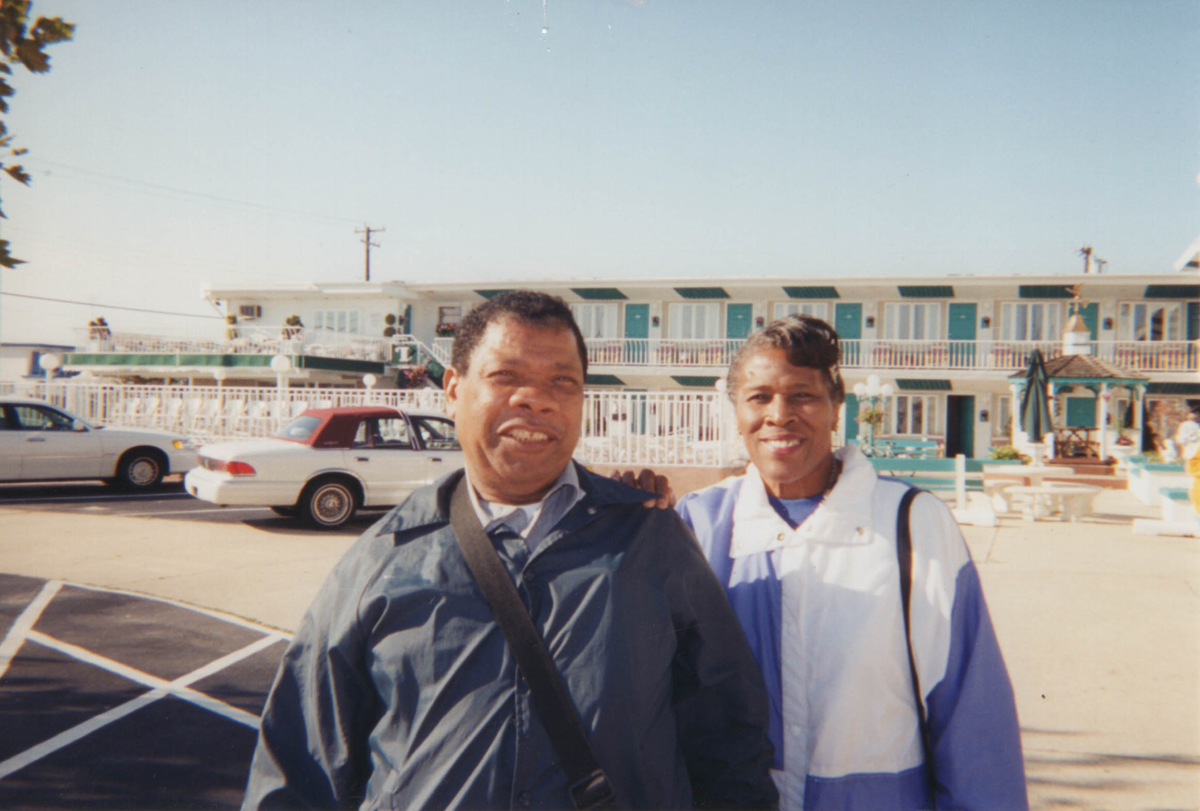
A conversation with Violetta Sharps Jones on her experiences growing up and going to school in Lakeland during segregation. Quotes: "All of the teachers were amazing the teachers, at the Lakeland schools, made sure every student was educated." "I always appreciated the words of encouragement I got from neighbors." " The Lakeland community was close knit family." "Everyone in the Lakeland community knew and looked out for one another." "Even though Lakeland students faced segregation and desegregation, it never hindered their educational and family values." Recorded in Ms. Jones' home in Bowie, MD.
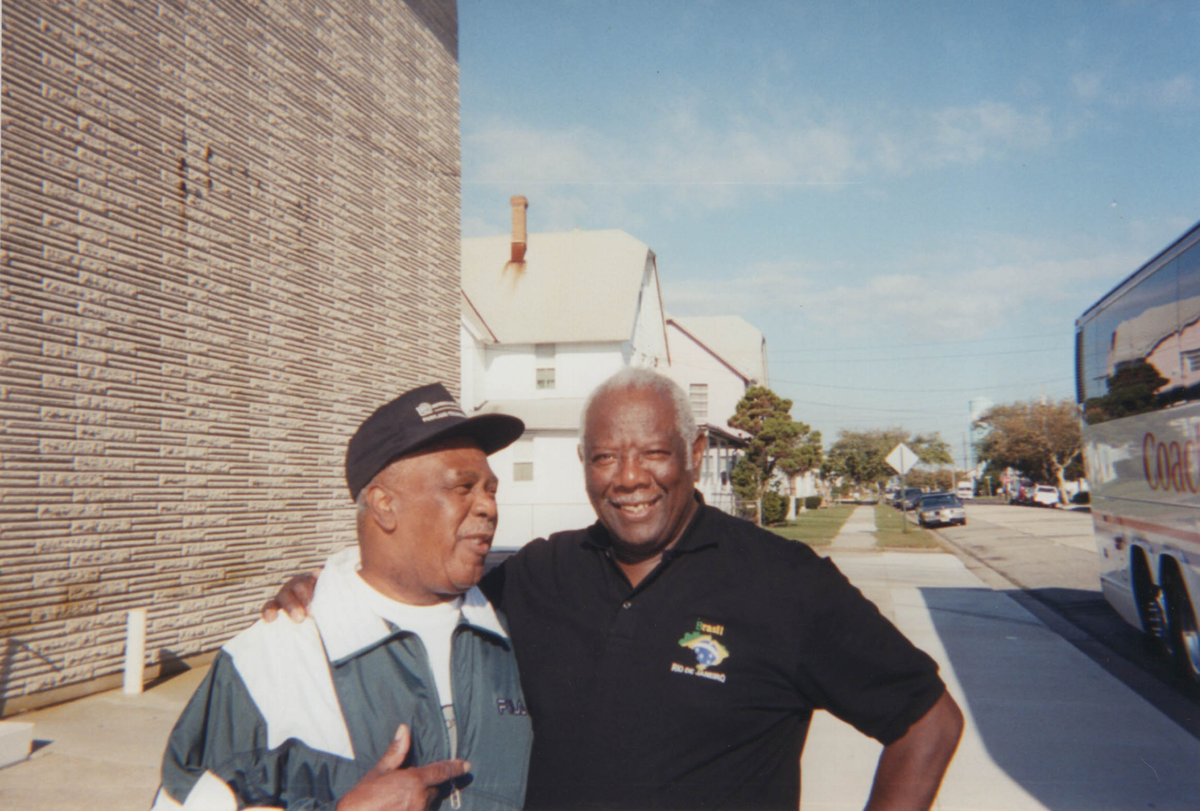
Attendants of the celebrations - childhood friends who left and returned, multigenerational family members, etc. Some attended Lakeland schools and still live in Lakeland.
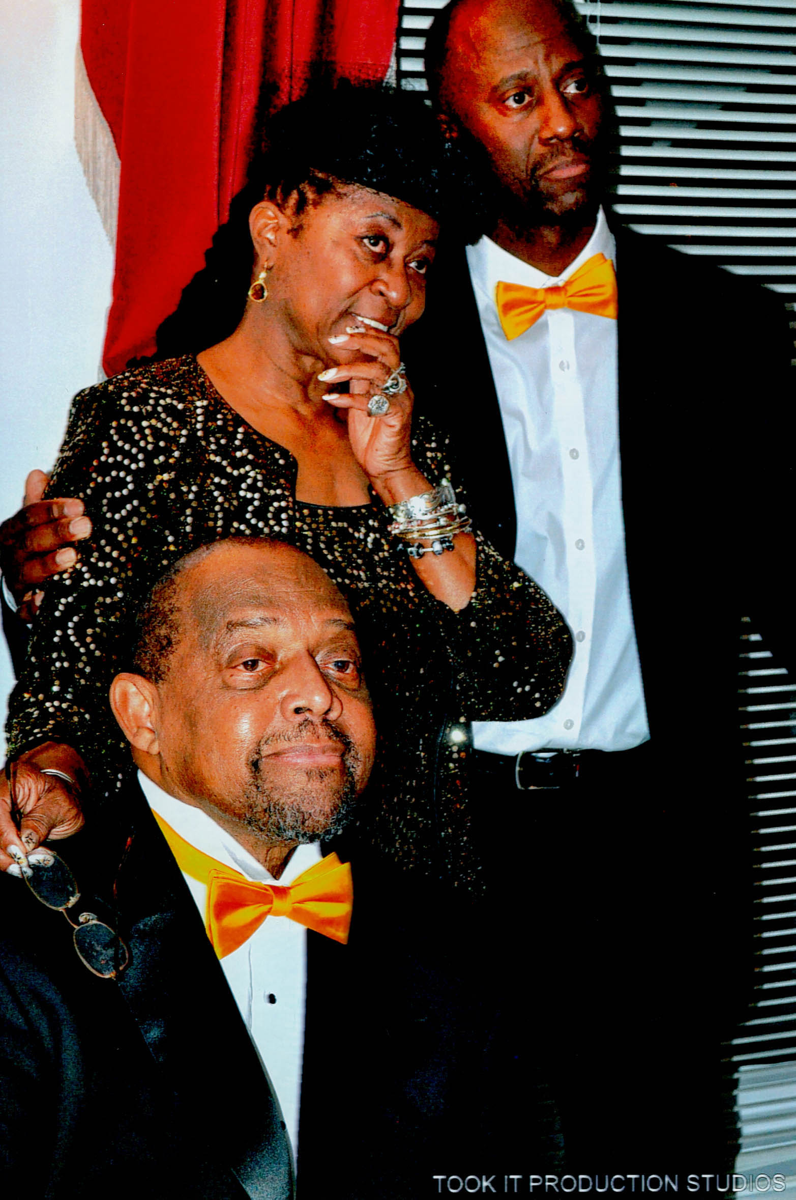
The donors and another man.
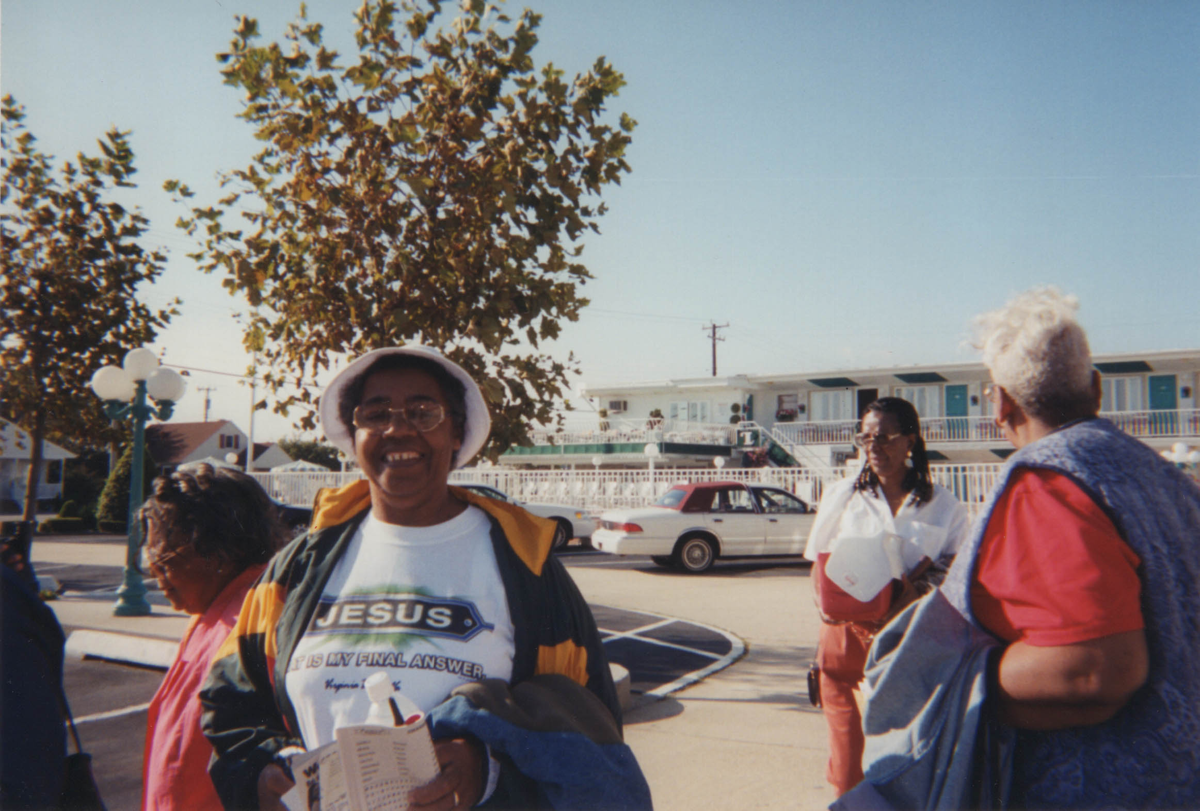
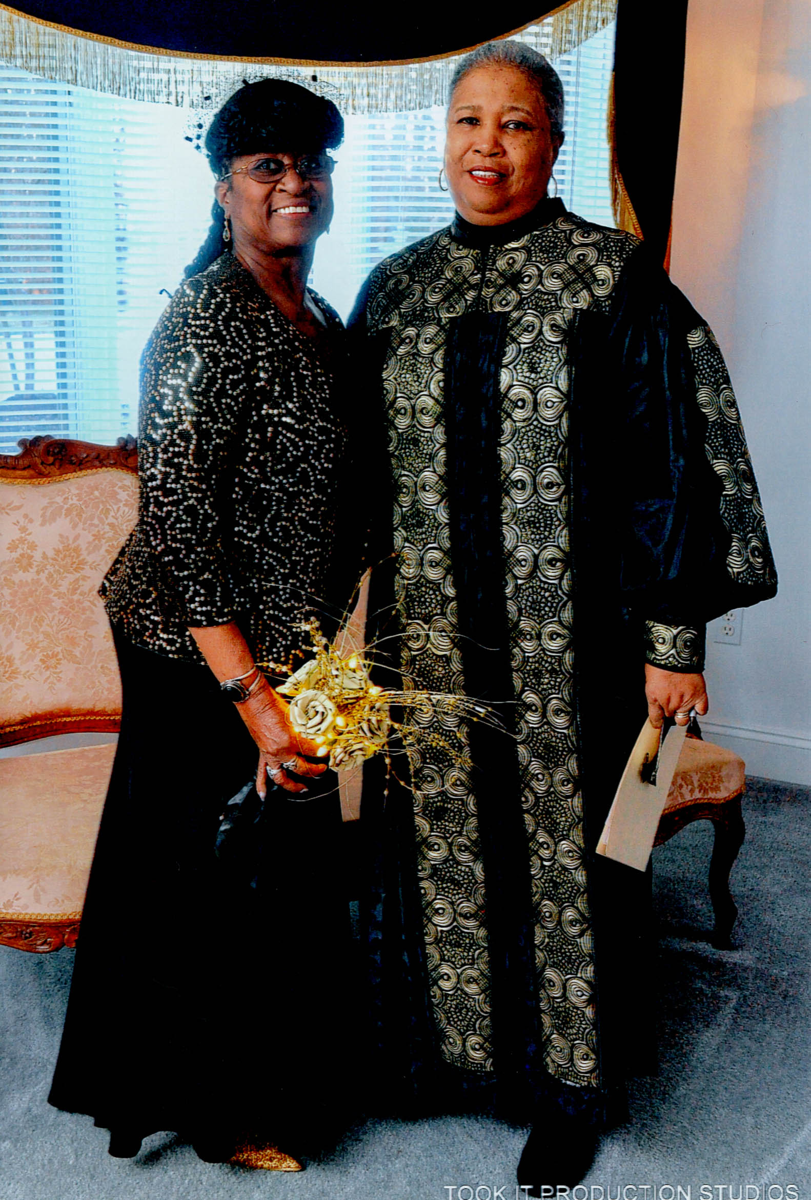
Photo with Pastor Edna Canty Jenkins.
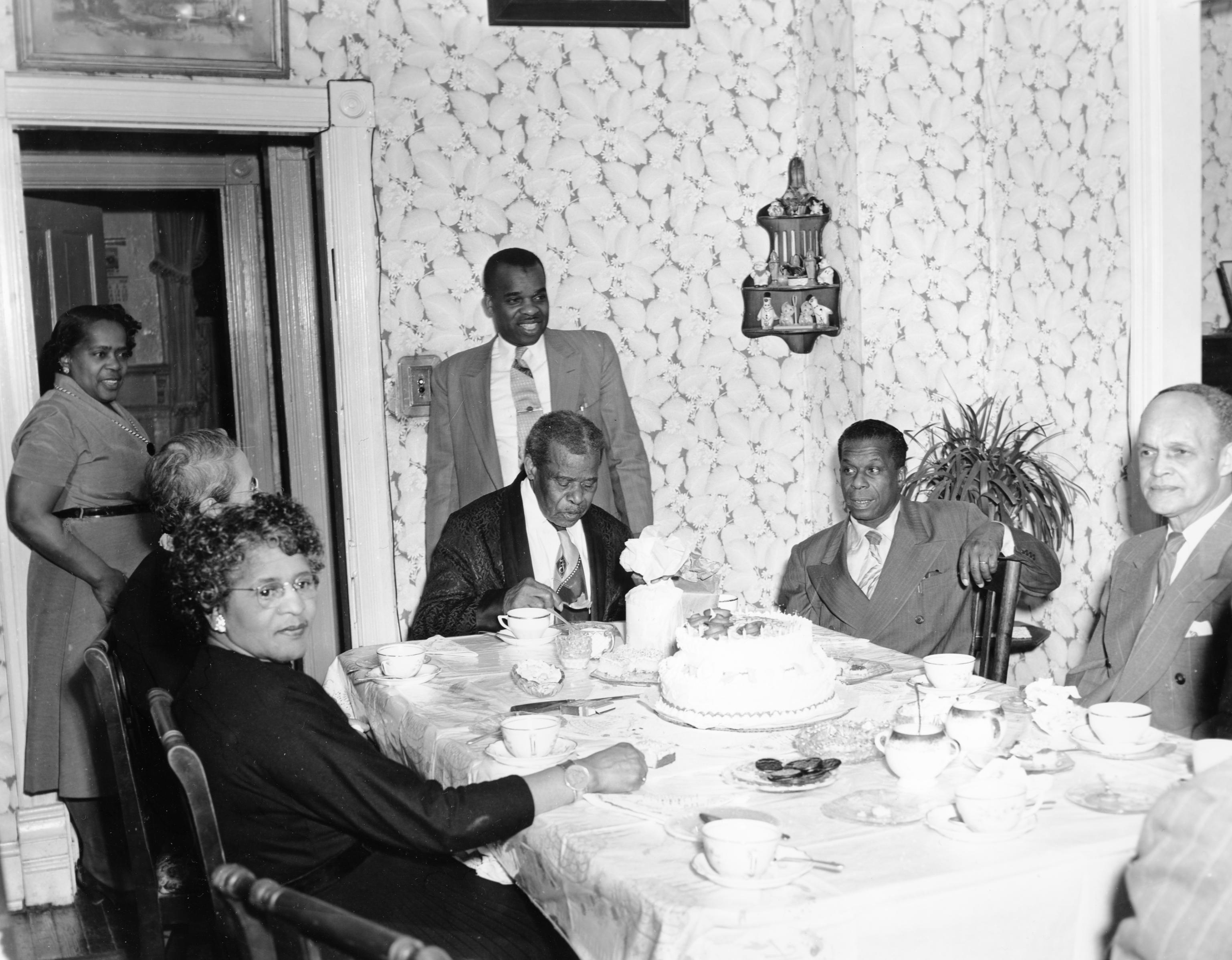
Birthday celebration for James Henry Gray
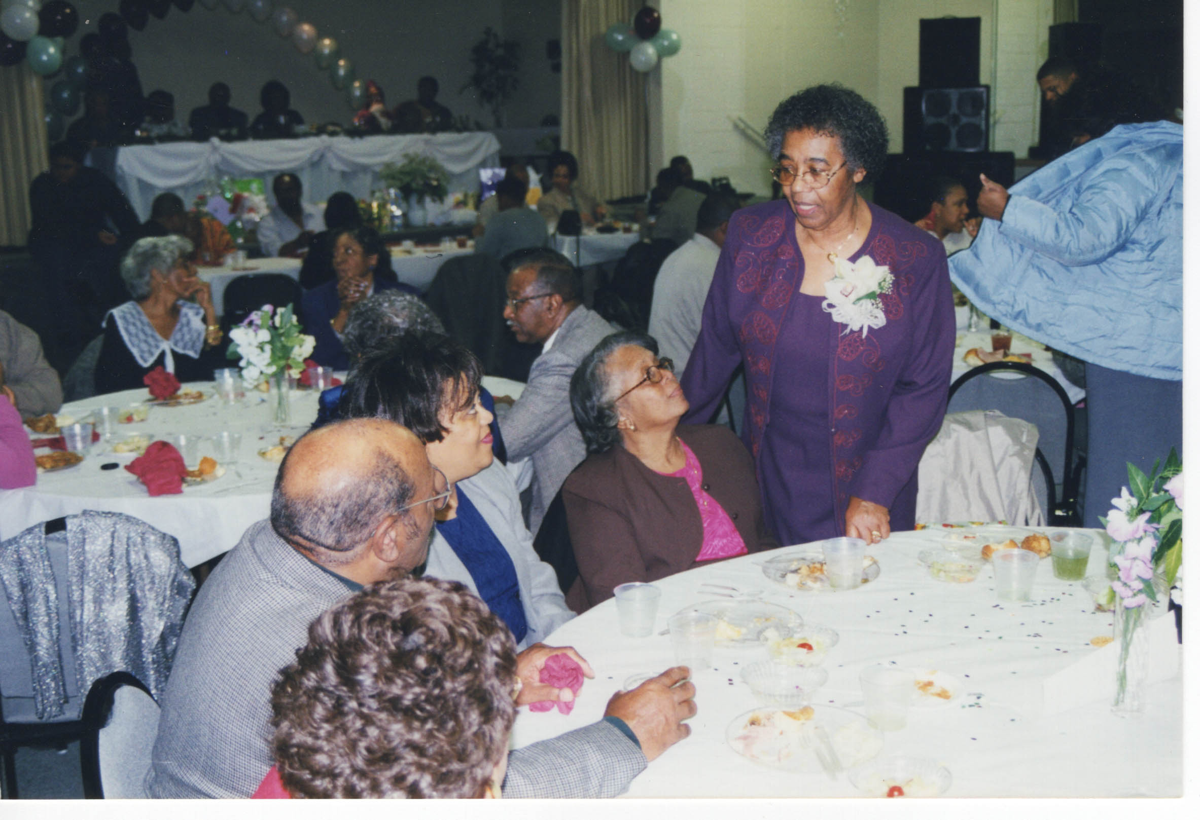
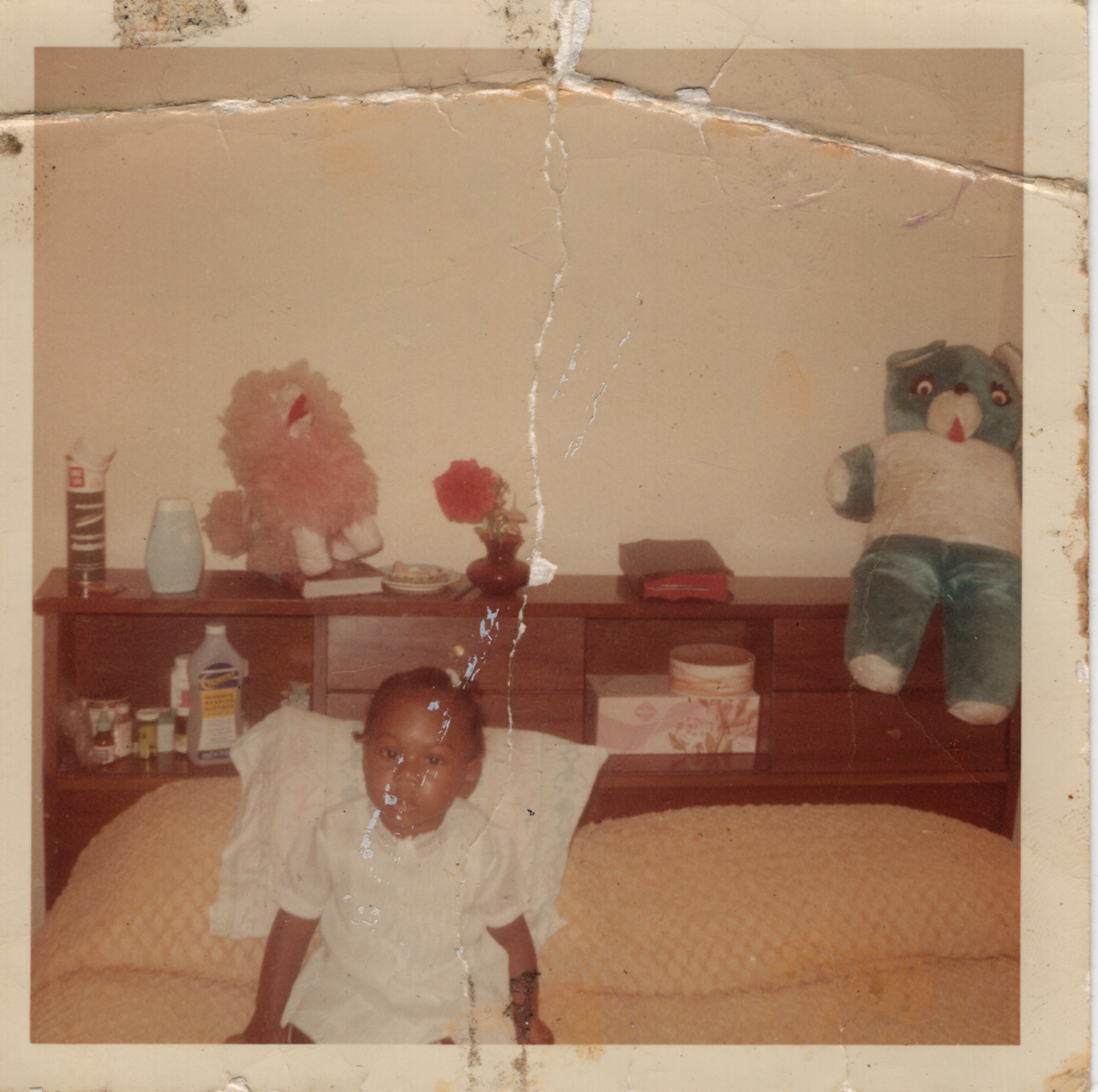
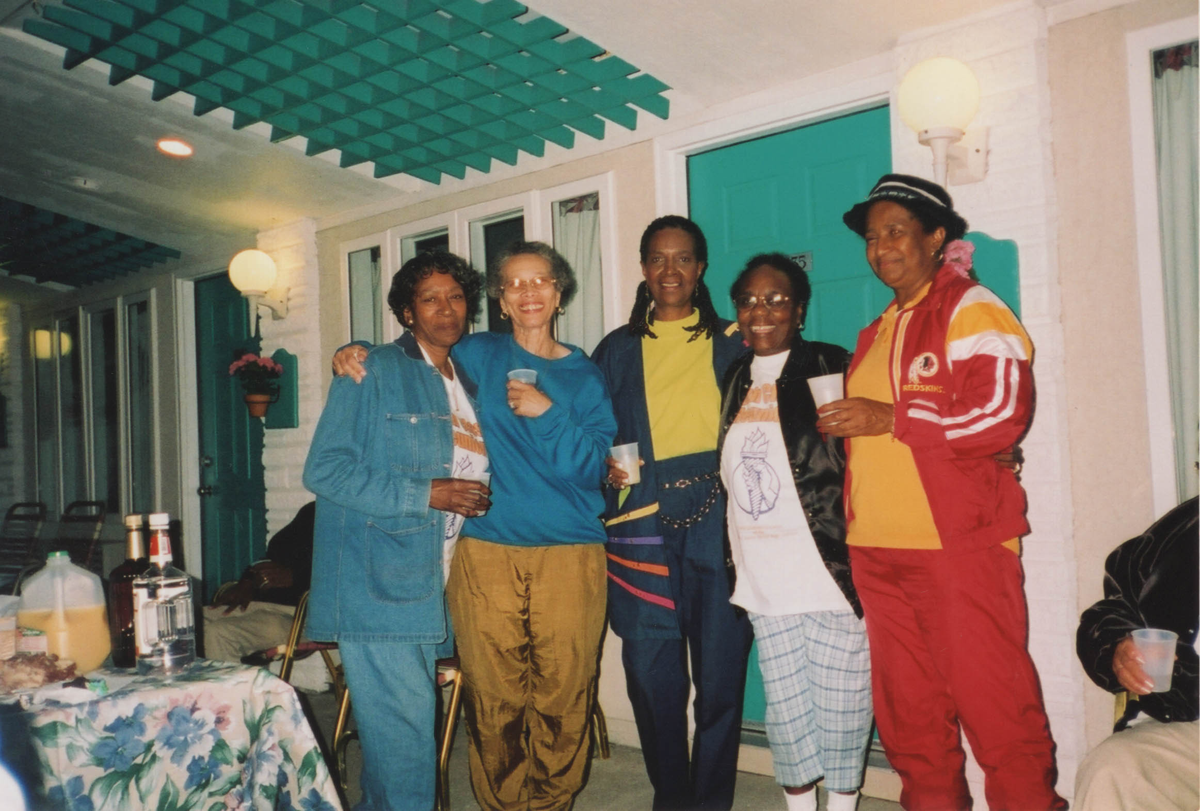

Joseph G. Brooks was born in 1871 and married his wife Rosa in 1896. As of 1910, he was living in a mortgage-free home on Lakeland Road with his wife and seven children. According to oral history, he lost his arm while working with a rail switching operation. Around the opening of the 20th century, the Brooks and Johnson families moved from the eastern section of Lakeland to the central section, an area populated by whites.
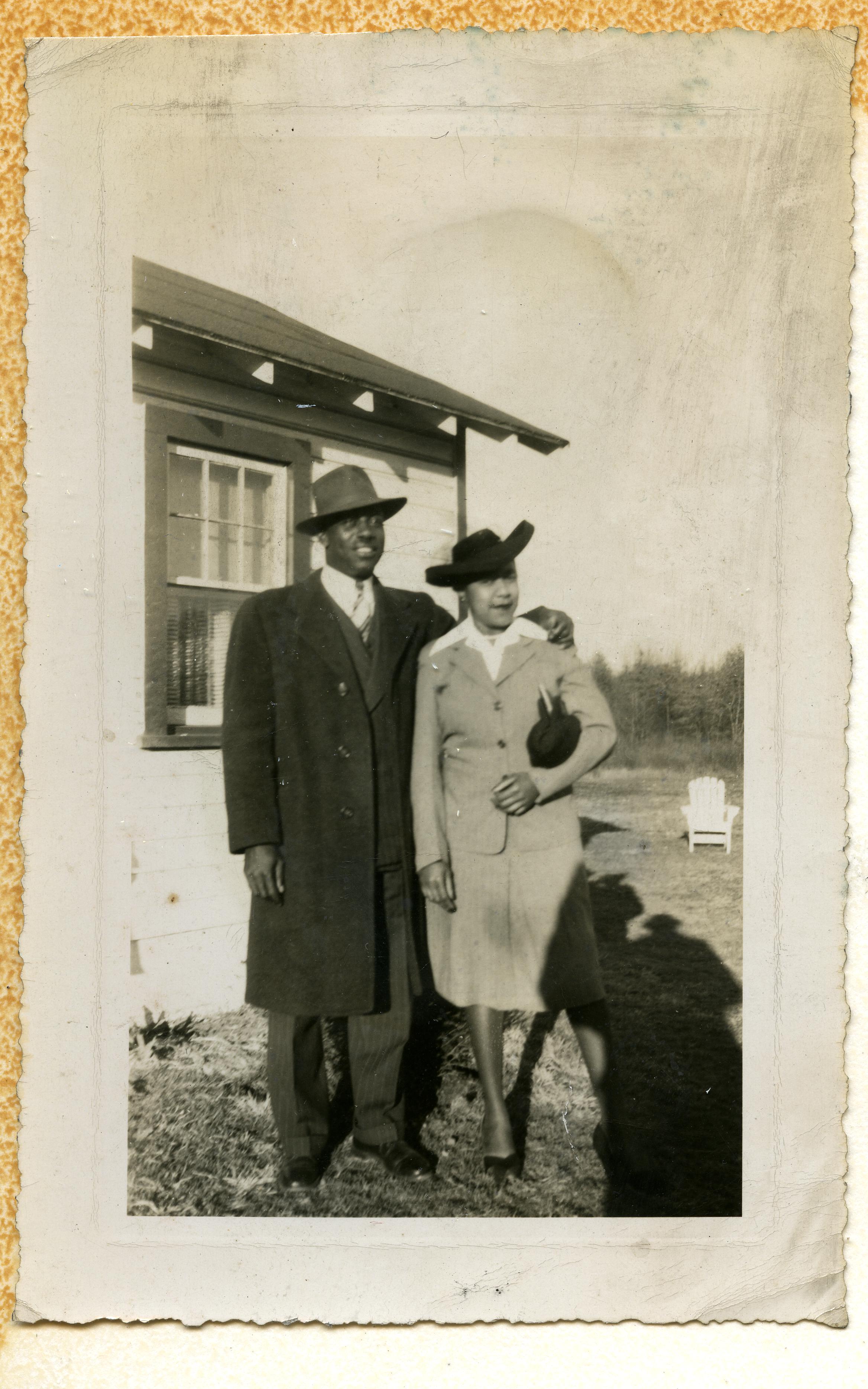
Easter
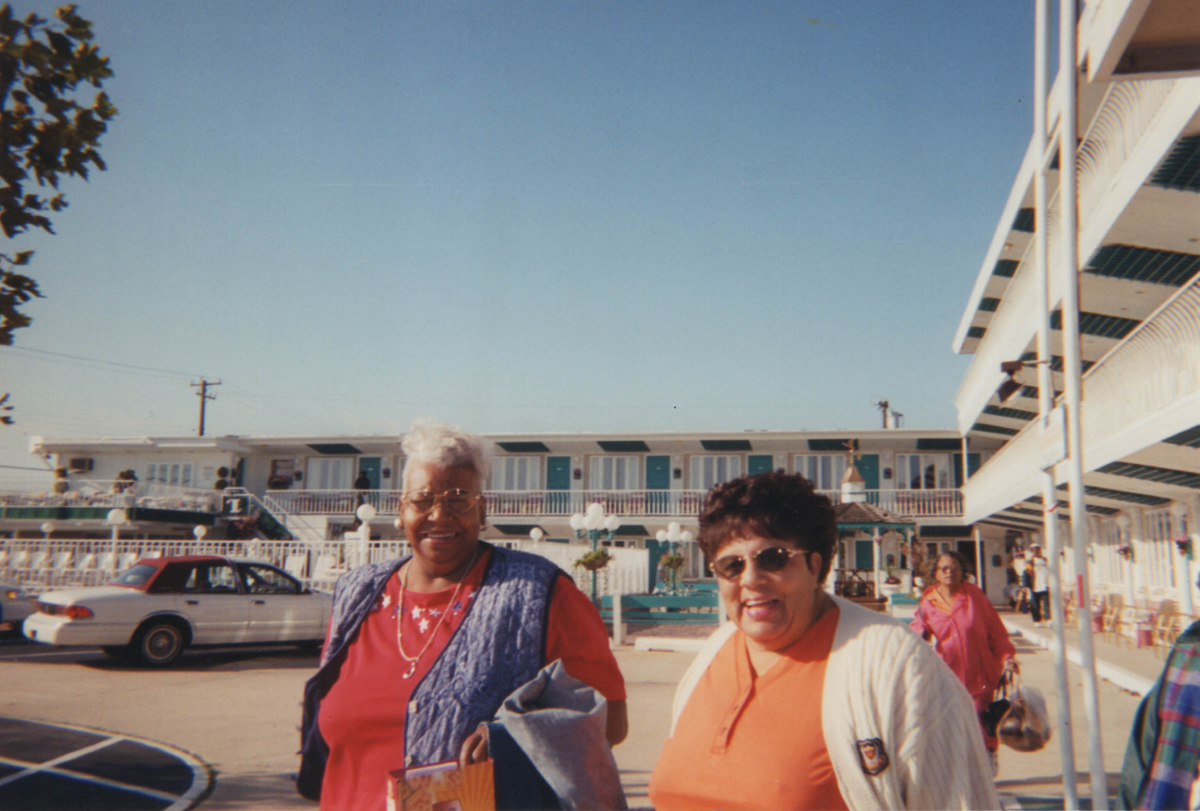
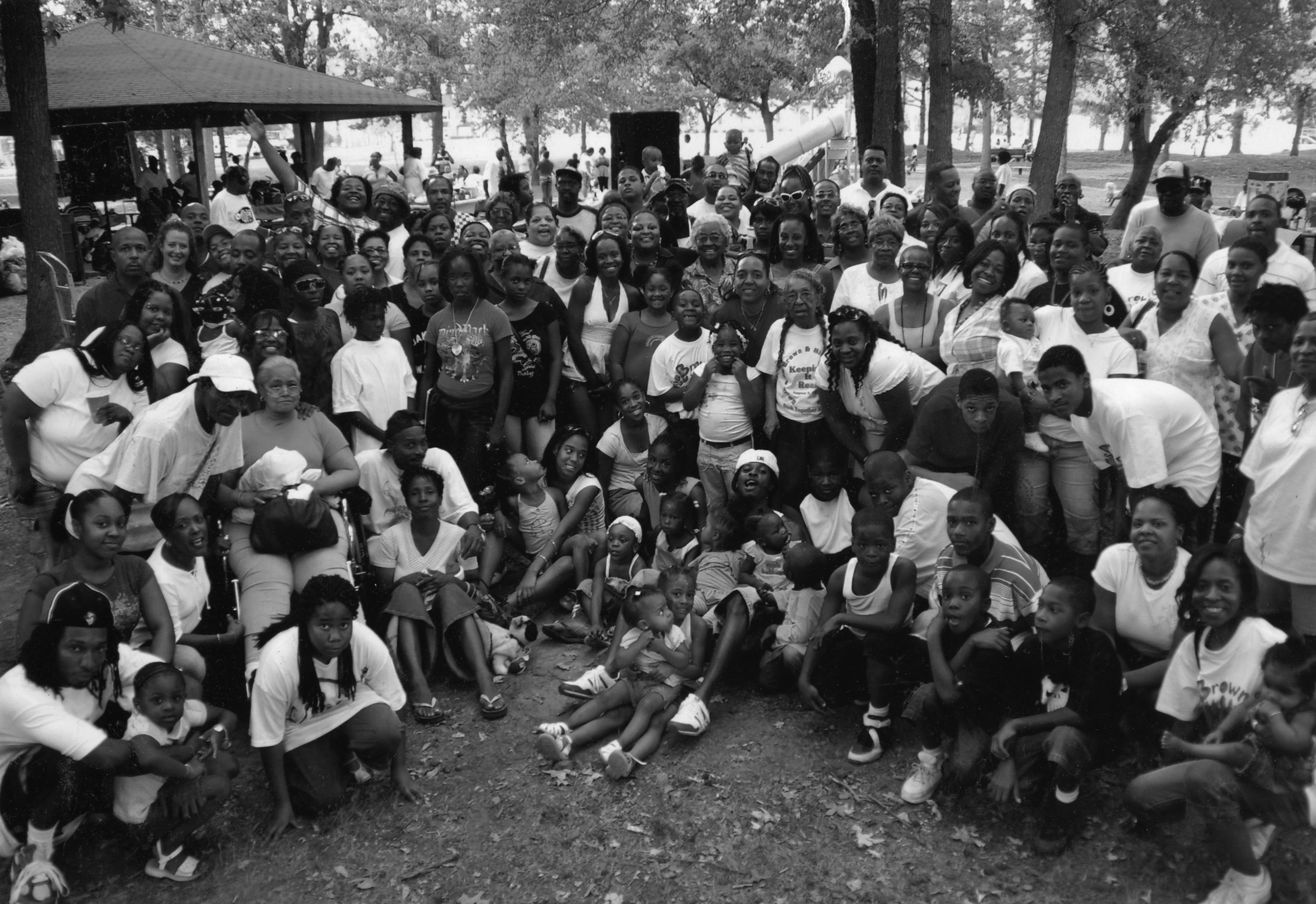
The 2007 Smith family reunion was held in Lakeland Community Park, as it is every other year. In alternate years, the family reunion is held in Pittsburgh, Pennsylvania. Several members of the family continue to live in Lakeland, and many others still consider Lakeland their home. Family members traveled from as far as Texas to attend the 2007 reunion.
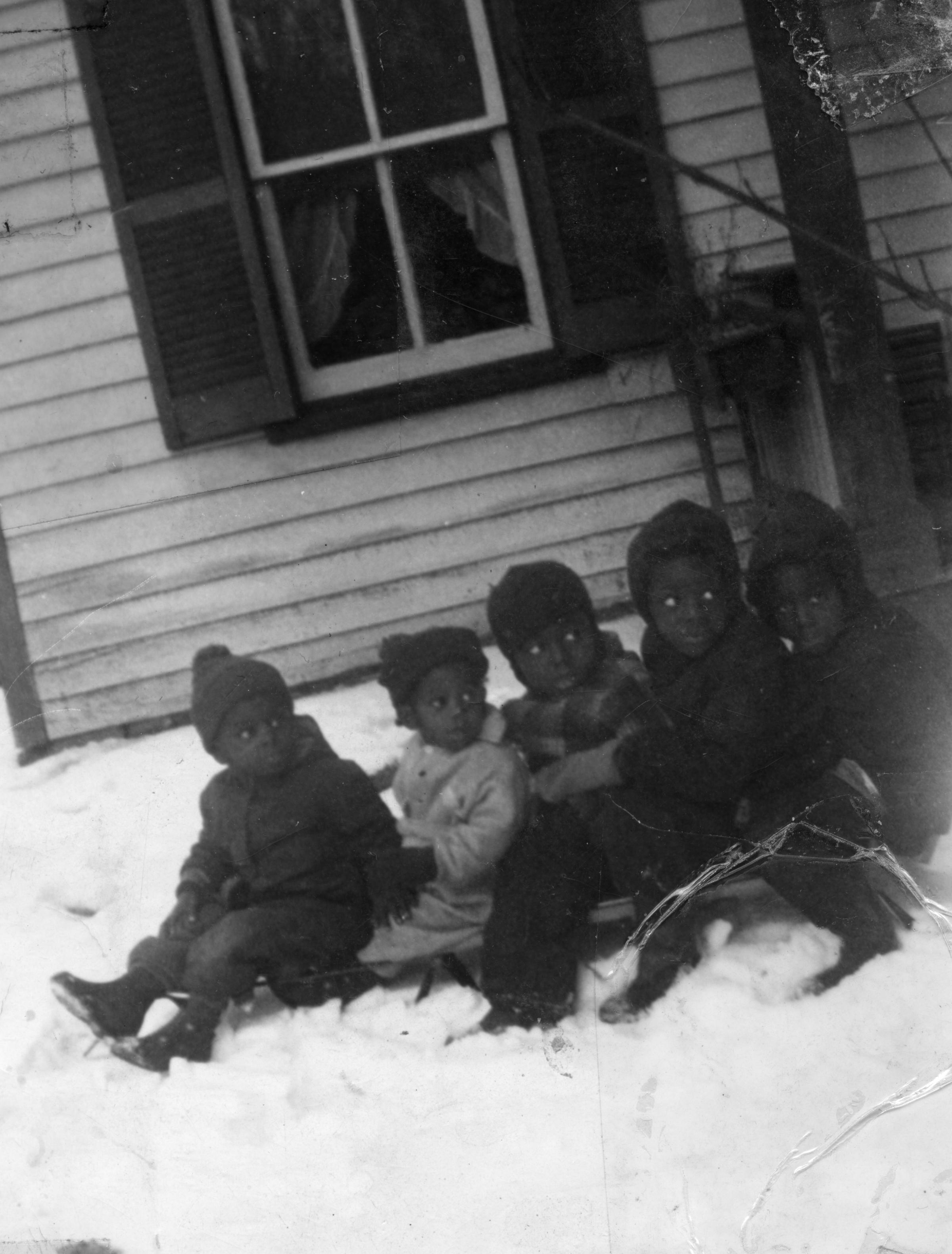
This interview of Dervy Lomax by Neil Cohen is one of two interviews Mr. Lomax has given as part of the Lakeland Community Heritage Project's oral history archive. The interview is broken into two parts: basic biographical data about himself and his family and the impact living in Lakeland has had upon him, personally. Dervy Lomax was born December 20, 1923 in Berwyn. He became a part of the Lakeland community when he came to Lakeland for elementary school. Mr. Lomax recalls the community watching out for his wellbeing, when neighbors told his parents of his misadventures with a well/spring in an empty field on his route to school. Dervy Lomax married a woman named Thelma in 1953 at First Baptist Church in College Park. They remain married at the time of the interview. Mr. Lomax recalls competing for Thelma's hand with a man who would be the best man at Thelma and Dervy's wedding. When she felt he was taking too much time to propose, an aunt pressured him not to be too choosy or to wait too long. The couple has two sons, Gregory Lomax, born March 6, 1954 and Elson Lomax, born November 28, 1956. Mr. Lomax's parents were Etelka Johnson and Charles Lomax, both born in 1902. Etelka was born and lived in Lakeland all her life. Her parents were Blanche and Charles Johnson, of Bladensburg and Lakeland, respectively. Charles Lomax was born in Muirkirk and grew up in Berwyn Heights. His mother was Henrietta Lomax and she and her husband lived in Muirkirk. As a member of the Lakeland Community, Mr. Lomax was involved with the E.L.K.S. and American Legion, as well as being President of the County Boys Club and Serving on the City Boys Club. He is also a long-standing member of the First Baptist Church of College Park. During high school Dervy Lomax was a pitcher on the school baseball team. When he joined the Navy after graduating from high school, Mr. Lomax continued to play. Once he returned to Lakeland, he joined the community baseball team and recalls his time playing as some of the happiest times in the community. He was so talented and loved by the community that he remembers being urged to pitch in games when he was not even scheduled to play. Mr. Lomax remembers some of his most disappointing times as a member of the Lakeland community as being connected to his involvement in local politics. Starting in 1956, just after he returned from the Navy, Mr. Lomax joined Mary (Williams) Holloman in addressing the City Council about the cost of blacktop on Navahoe Street. Mr. Lomax (who was acting as spokesman for Lakeland) was asked if he was a registered voter and, because of his recent service, he was not, so his concerns were not heard by the Council. He ran for Council in 1957 and was elected. During his time serving on the council, Mr. Lomax emphasizes that he demanded respect and gave respect to his peers in return. Despite respecting one another, the Council continued to avoid addressing his concerns through their votes, whenever possible. The proudest accomplishments in Dervy Lomax's life both centered around education of Lakeland youth. First, he played a large part in getting a school in Lakeland after the old school was earmarked as a school for slow learners, a tactic often employed to remove schools for colored children. Committees of black communities were organized along the Route 1 corridor to discuss where the new school should be built, but the school board also held a non-disclosed, whites only meeting in which they decided to build the new school in Berwyn. Because Mr. Lomax was informed of this meeting by his white friends, he was able to address the school board about their misconduct when they held the official meeting in which all communities were present. As a result, the Superintendent of schools agreed that the school should be in Lakeland. Mr. Lomax also appealed to the State Board of Education for integrated schools while his oldest son was entering high school. During the appeal, colored students were being bussed to Fairmont Heights School from College Park, but Gregory was taught by a private tutor, in order to keep his education on track without compromising Mr. Lomax's appeal. The Lomax's won the appeal and Gregory was allowed to choose between Fairmont and College Park High Schools the following year. He attended College Park. The interview continues with Dervy Lomax addressing various influences in his life. He starts by sharing that religion allowed him to successfully work with the public without being negatively influenced by the lack of personal respect that often accompanied his interactions. For example, when Mr. Lomax was successful in petitioning for code enforcement in Lakeland, many of the landlords in Lakeland were unhappy with him. His faith allowed him to grapple with the dilemmas of doing what was best for his community even when members of his community were unhappy with him. Religion also allowed him to overcome the dishonesty he encountered on the City Council. Finally, religion played a role in his ability to deal with Urban Renewal. A further discussion of Urban Renewal in Lakeland will be available in a later interview, according to this recording. Dervy Lomax was also influenced by two important people in his life. Charles Johnson, his grandfather, was a politically oriented person who kept track of current events. Mr. Lomax spent time discussing these events with his grandfather and even listened to the bombing of Pearl Harbor, live on the radio, with Mr. Johnson. From this relationship, Mr. Lomax developed an interest in politics. Mr. Lomax's mother imparted on him the belief that education was important. He attributes his beliefs, "you have to be educated to do something in this world" and "If you don't have nothing up in your head, you don't have nothing in your pocket" to his mother. The subject of Urban Renewal in Lakeland is revisited again, briefly, as being the event to have caused the most significant change in the community. Mr. Lomax expresses disappointment that many families did not return to live in the new houses that were built after Urban Renewal, despite the input they had in the rebuilding process. He also expresses regret that older members of the community are now selling their homes to owners who rent them to college students. Students do not respect the community and the community is deteriorating as a result. The most important events to impact Dervy Lomax's life are his marriage of 54 years and raising his two sons. He wishes his sons would marry and run for office, following in his footsteps. He also wishes for grandchildren. When asked about special childhood memories, Mr. Lomax returns to his memories of sports in the community. During his childhood, Lakeland was divided geographically, into the Southwest, Railroad Bulldogs, and Babyland areas of the community. Teams would form according to these divisions to play all sorts of games (football, baseball, horseshoes, etc). Mr. Lomax also fondly recalls lawn parties being held by local churches and lakes freezing during the winter and being used as skating rinks for the community and the university students. Those same lakes were used for swimming during the summer. At the close of the interview, Dervy Lomax states that he hopes the community will remember him as dedicated to Lakeland and that he will continue to fight for them as long as I have breath in my body".
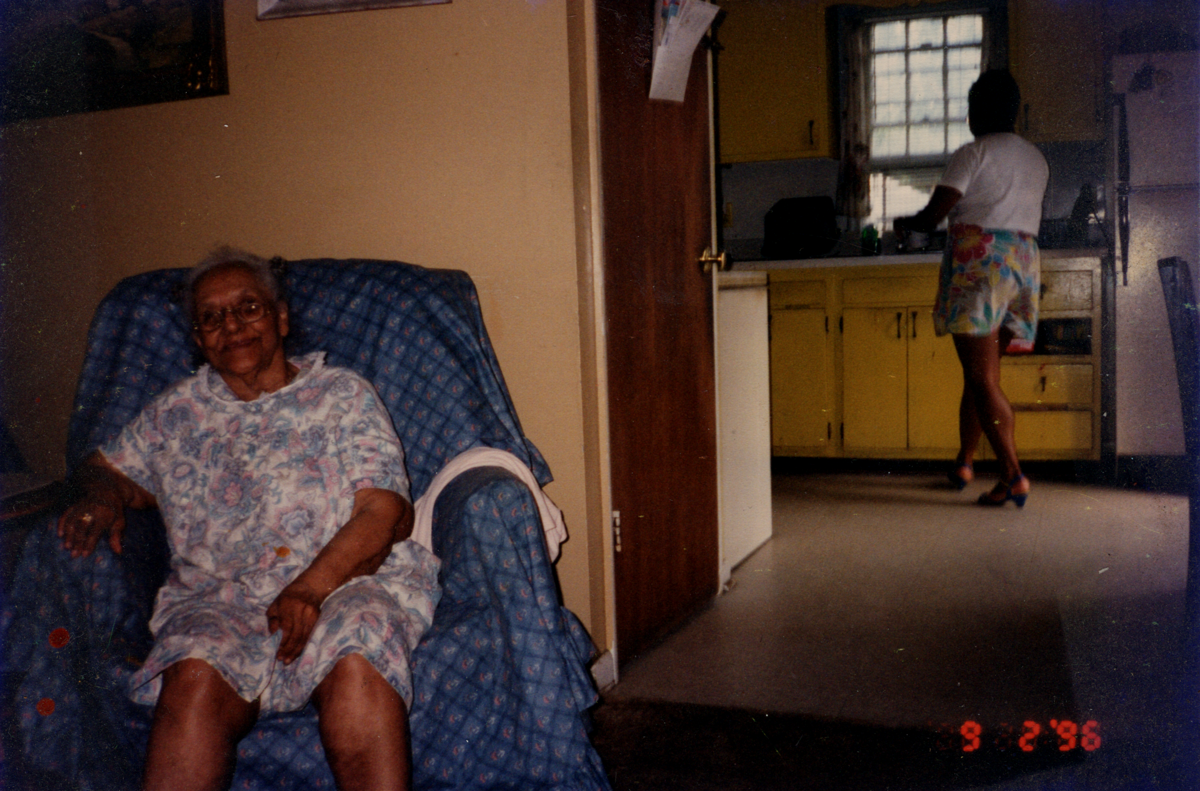
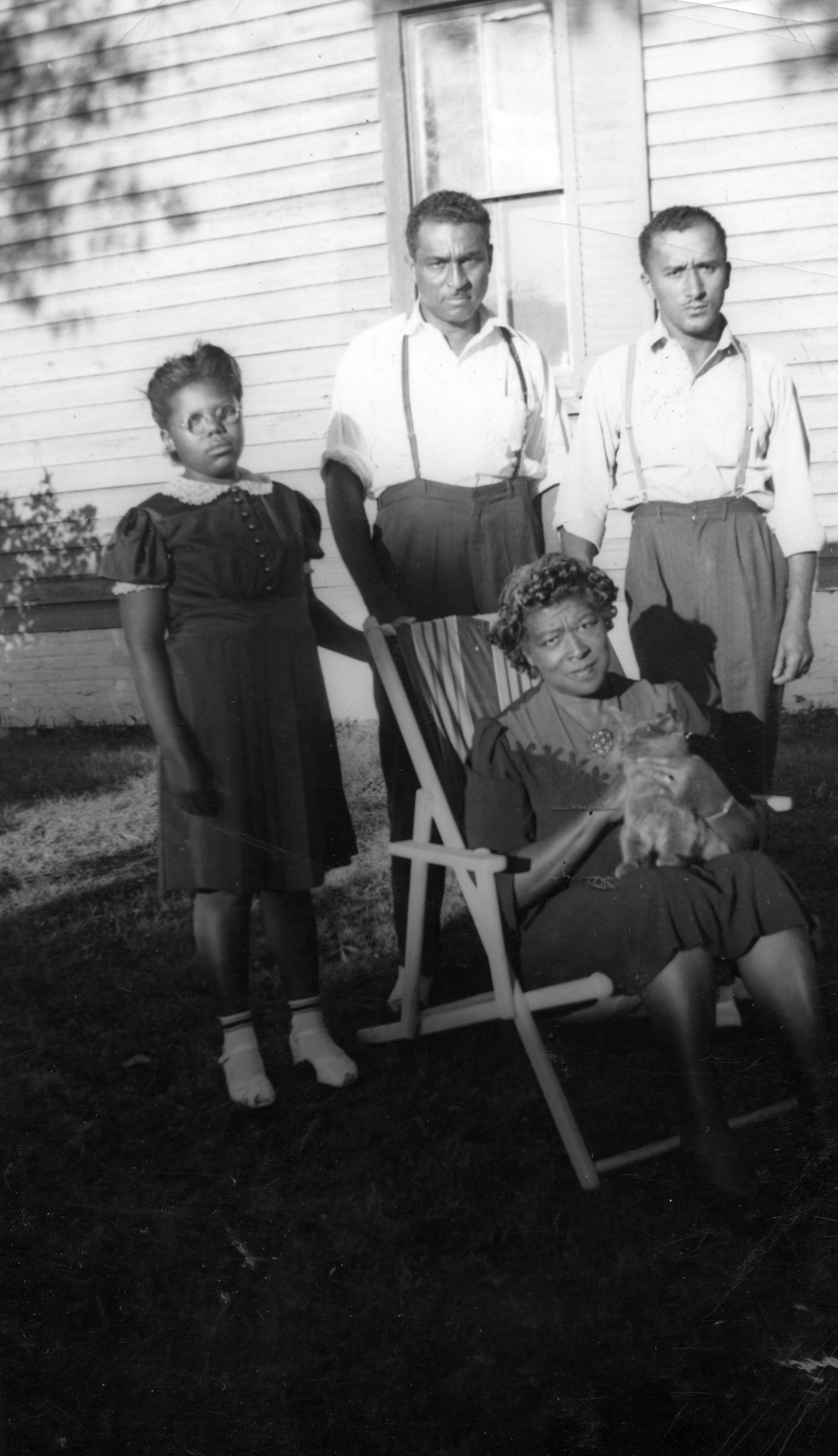
Seated, Emma Harrison Braxton. Harry Braxton and friends

In the rear yard of the Cloud Avenue home of George Henry and Agnes Gross. Mrs. Gross was the sister of Joanne's grandmother Emma Harrison Braxton
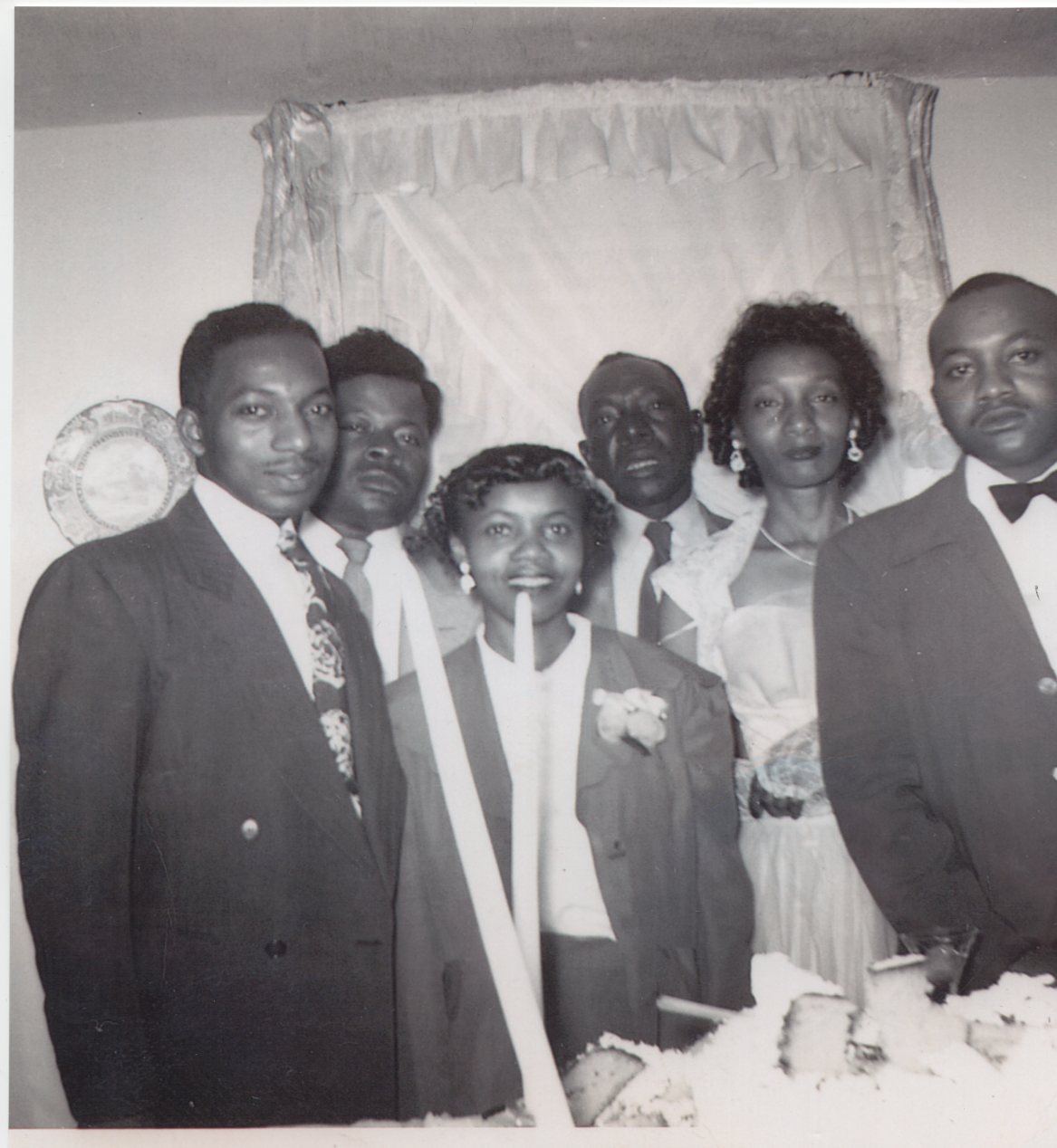
On April 5, 1953, Saxoline Briscoe married Sherman Campbell at her home on Lakeland Road. The bride’s father and siblings pose with her in this picture. From left to right, are Joseph Louis Briscoe, Spencer M. Briscoe, Mary Ruth Briscoe Jackson, George Phillip Briscoe (father of the bride), Saxoline Briscoe Campbell, and Joseph McDonald Briscoe. (Courtesy of Joseph Louis Briscoe.)
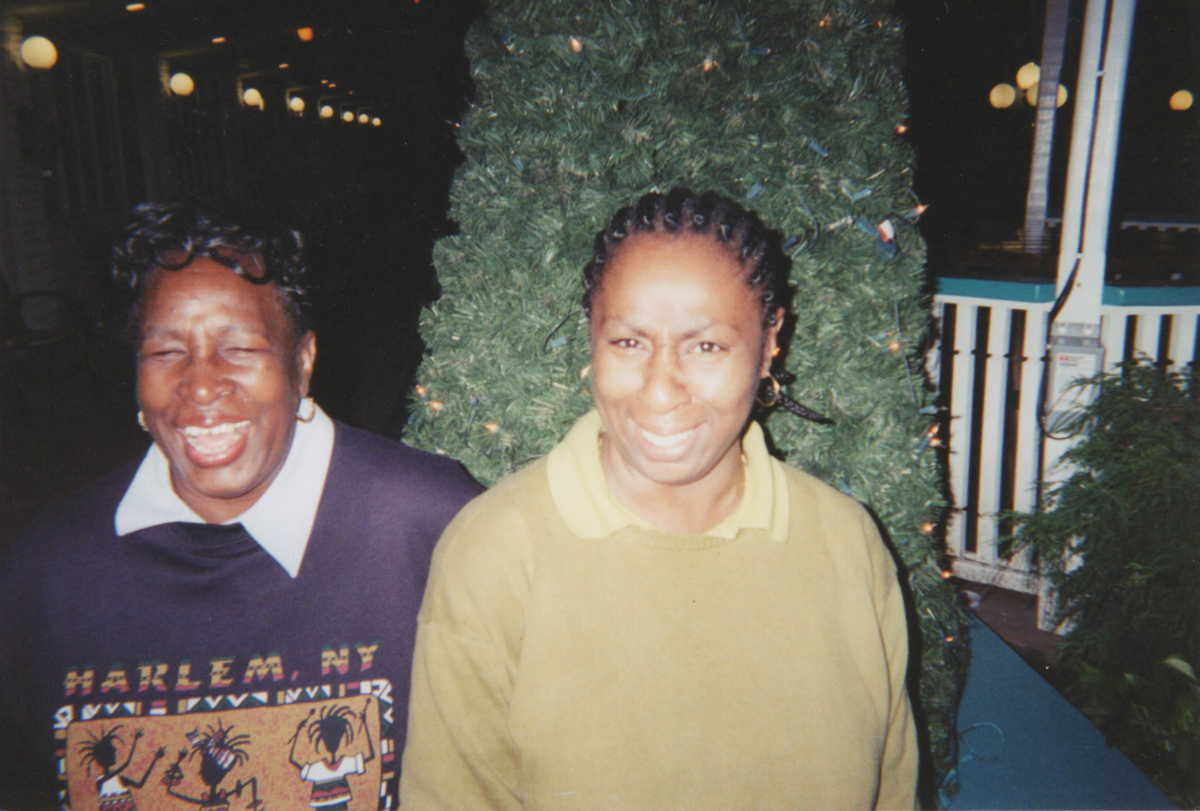

Jacqueline, Janet and Agnes Randall at wedding
A gold embossed marriage album. There is a photo of a framed marriage certificate tucked into a viewing panel. Contains various photos from the fiftieth wedding anniversary of the donors. Pictured is the marriage certificate, portraits of the couple, and an invitation to their anniversary party. There are also photos of the venue, photos of Pearl's makeup being done, and screenshots from a slideshow (presumably) about their relationship. Photos of friends and family, writing notes to the couple and mingling.
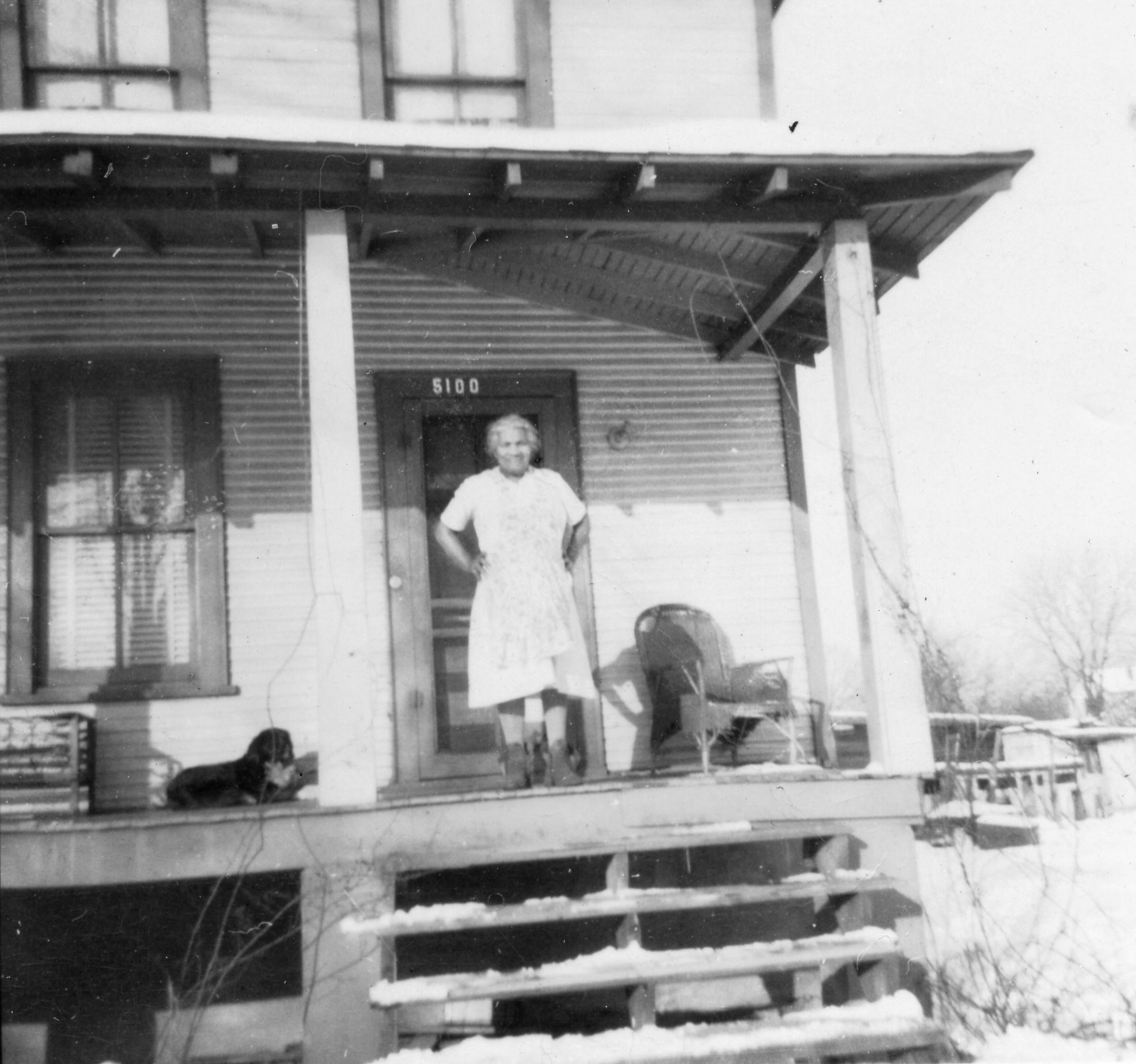
on porch of home on Pierce Avenue
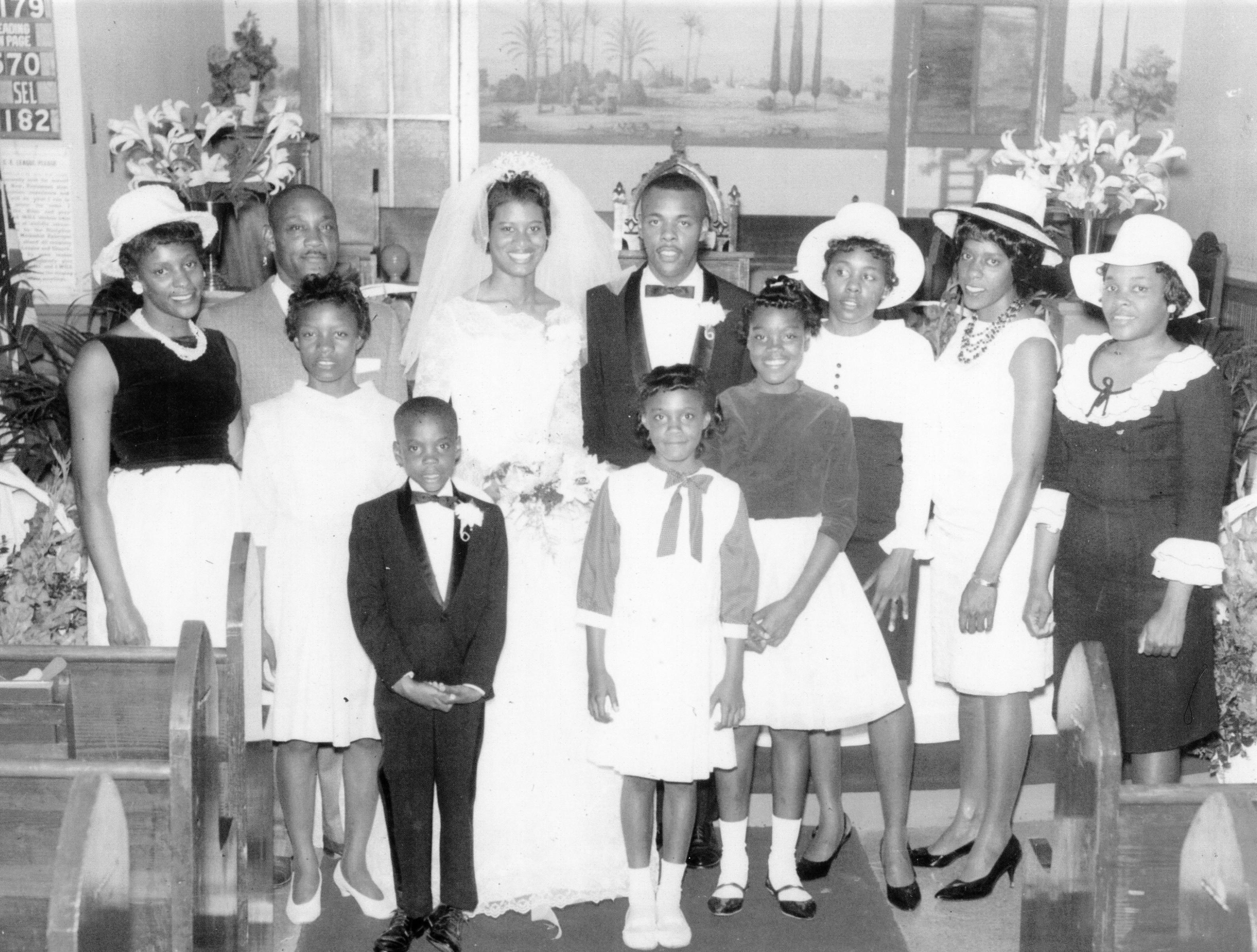
Smith Family
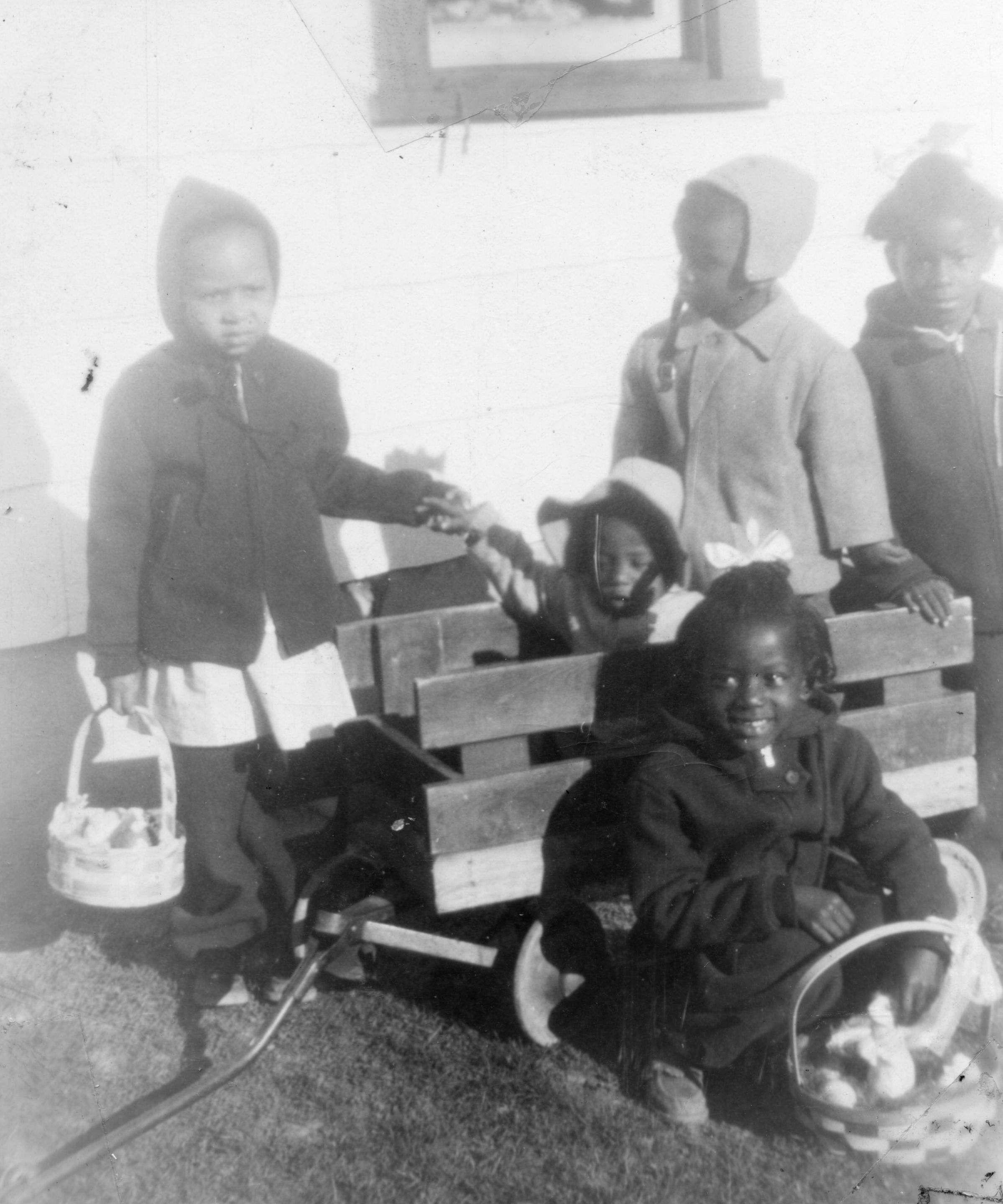
Children of the Randall family
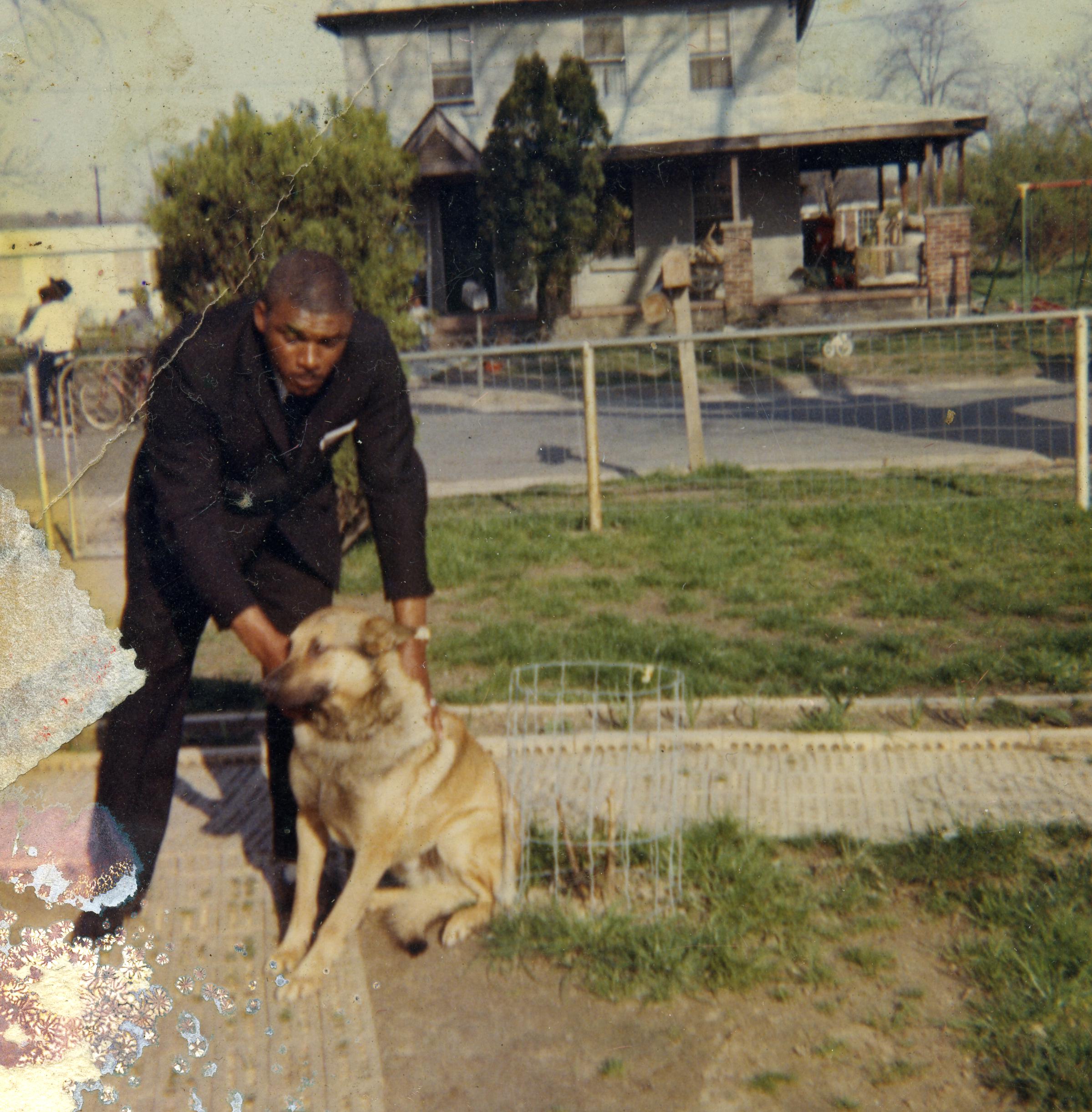
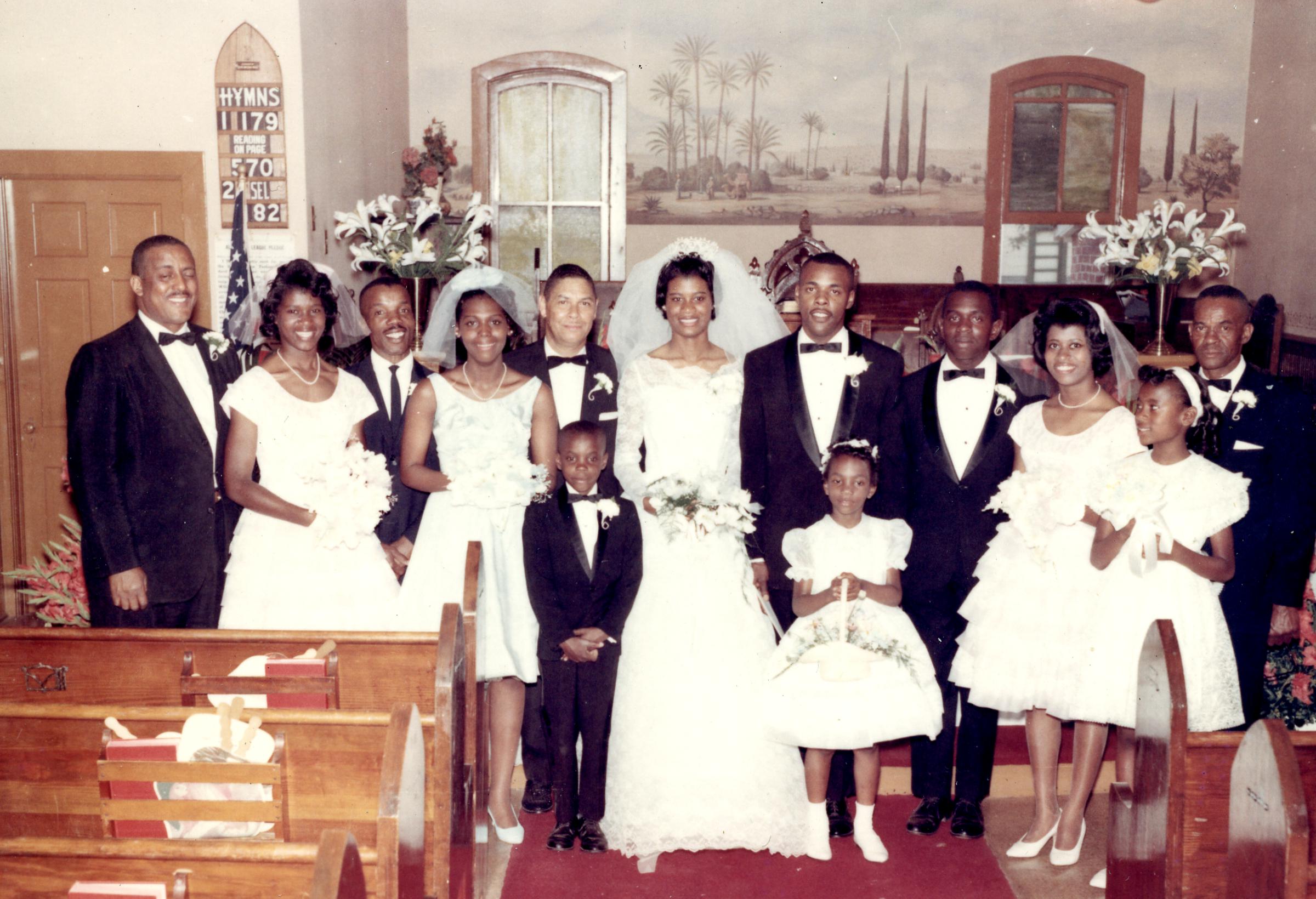
Wedding of Mary Ann Campbell and George Smith at Embry AME Church

Celebration for James Henry Gray at his home on 54th Avenue
